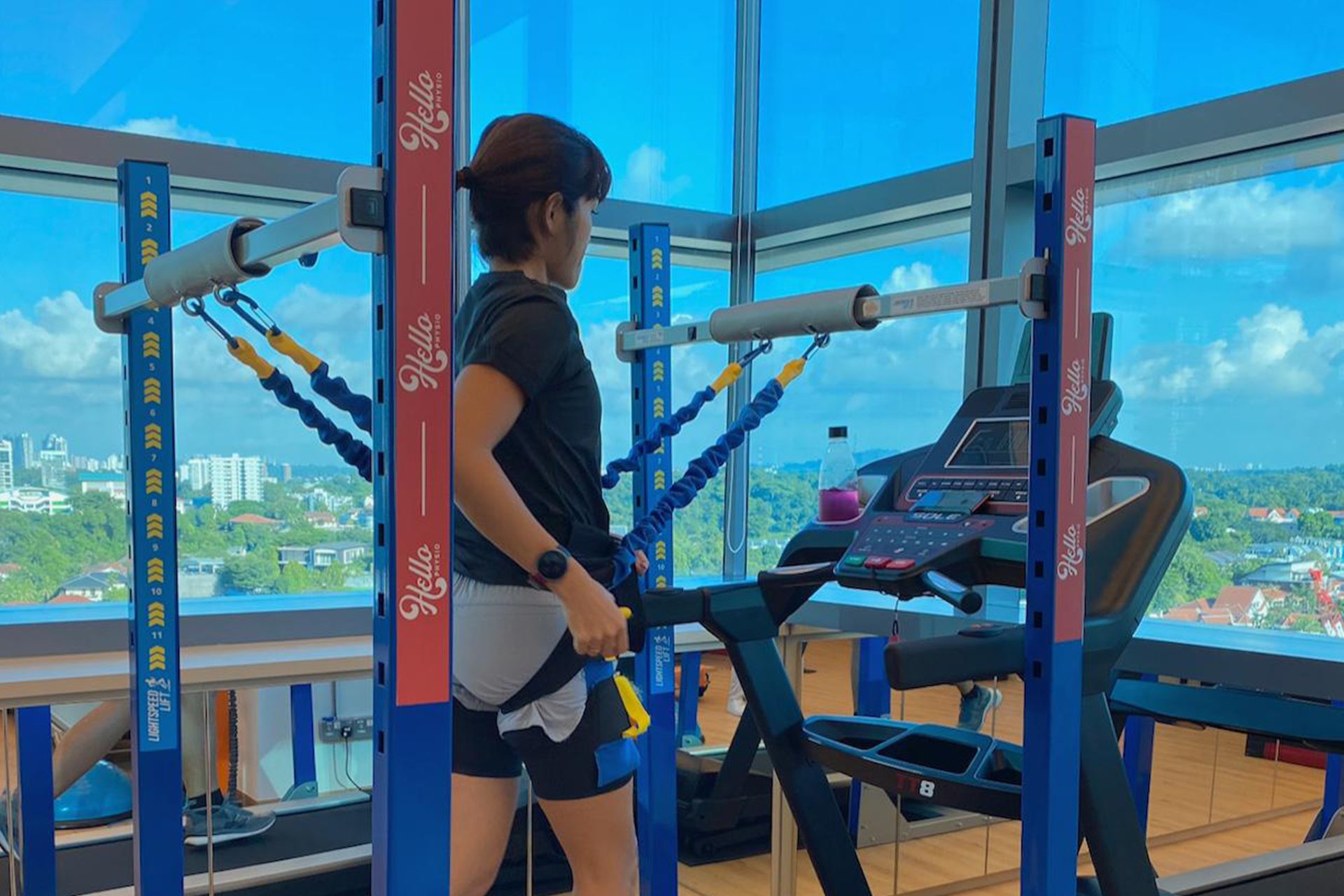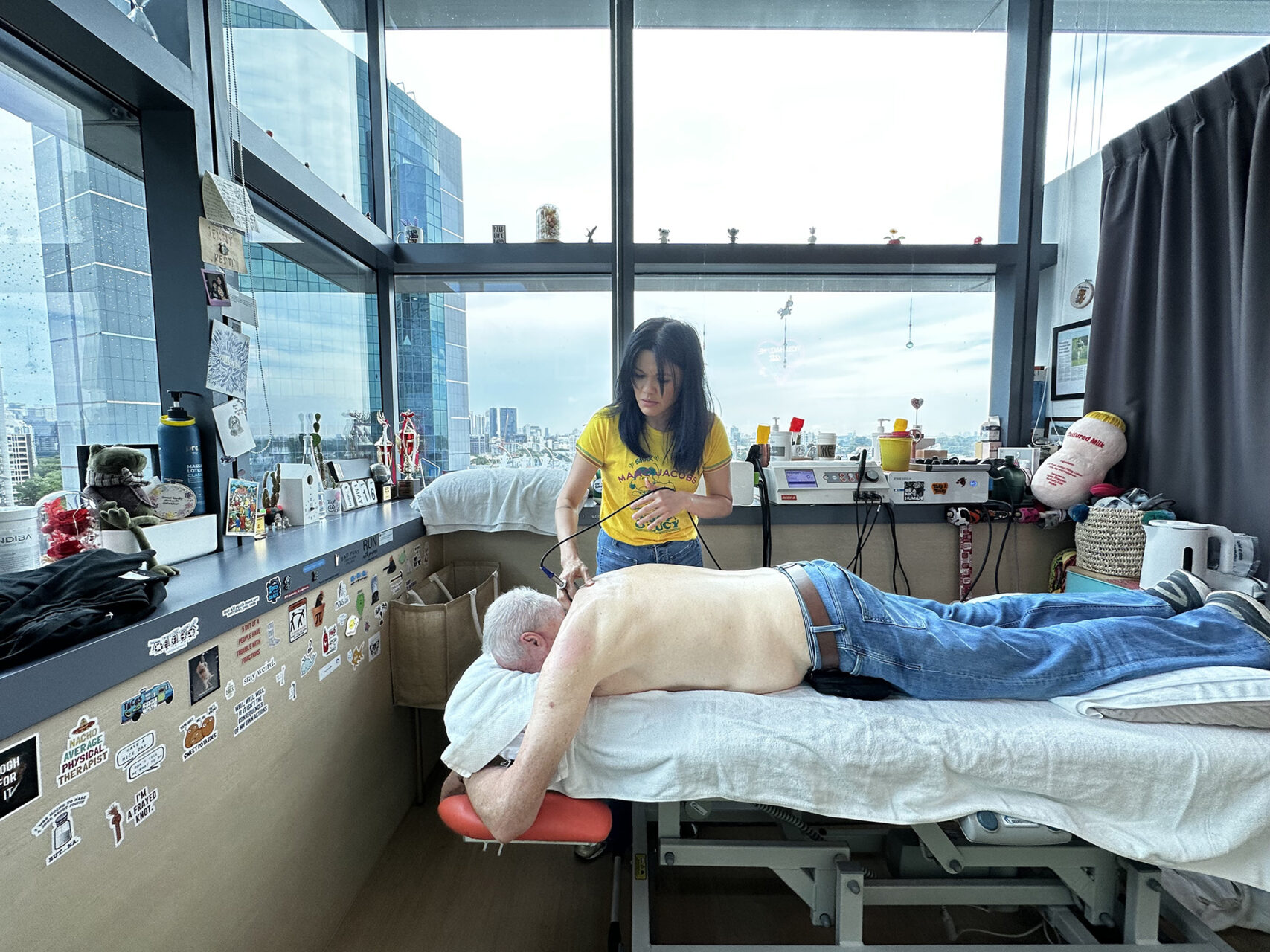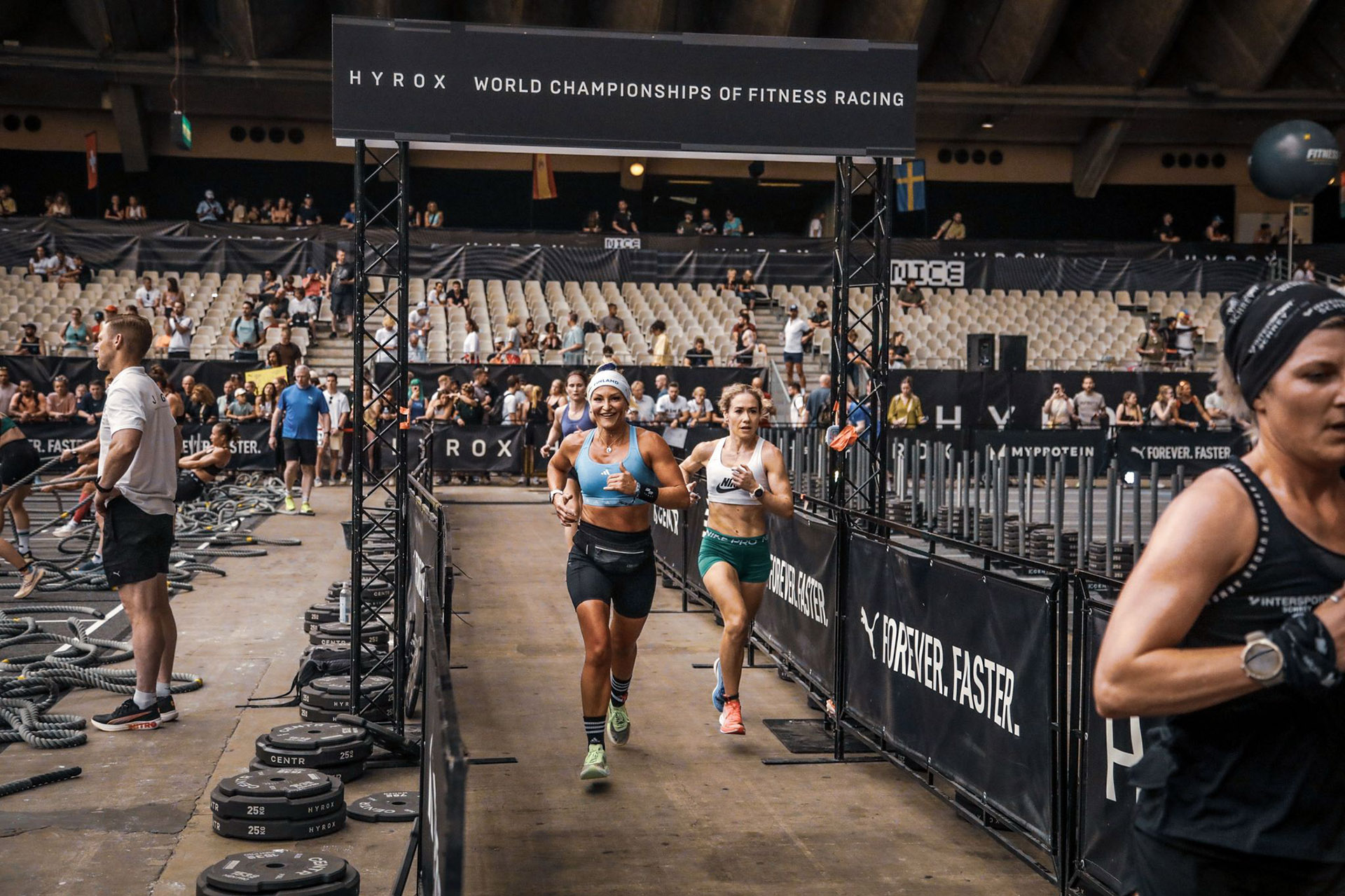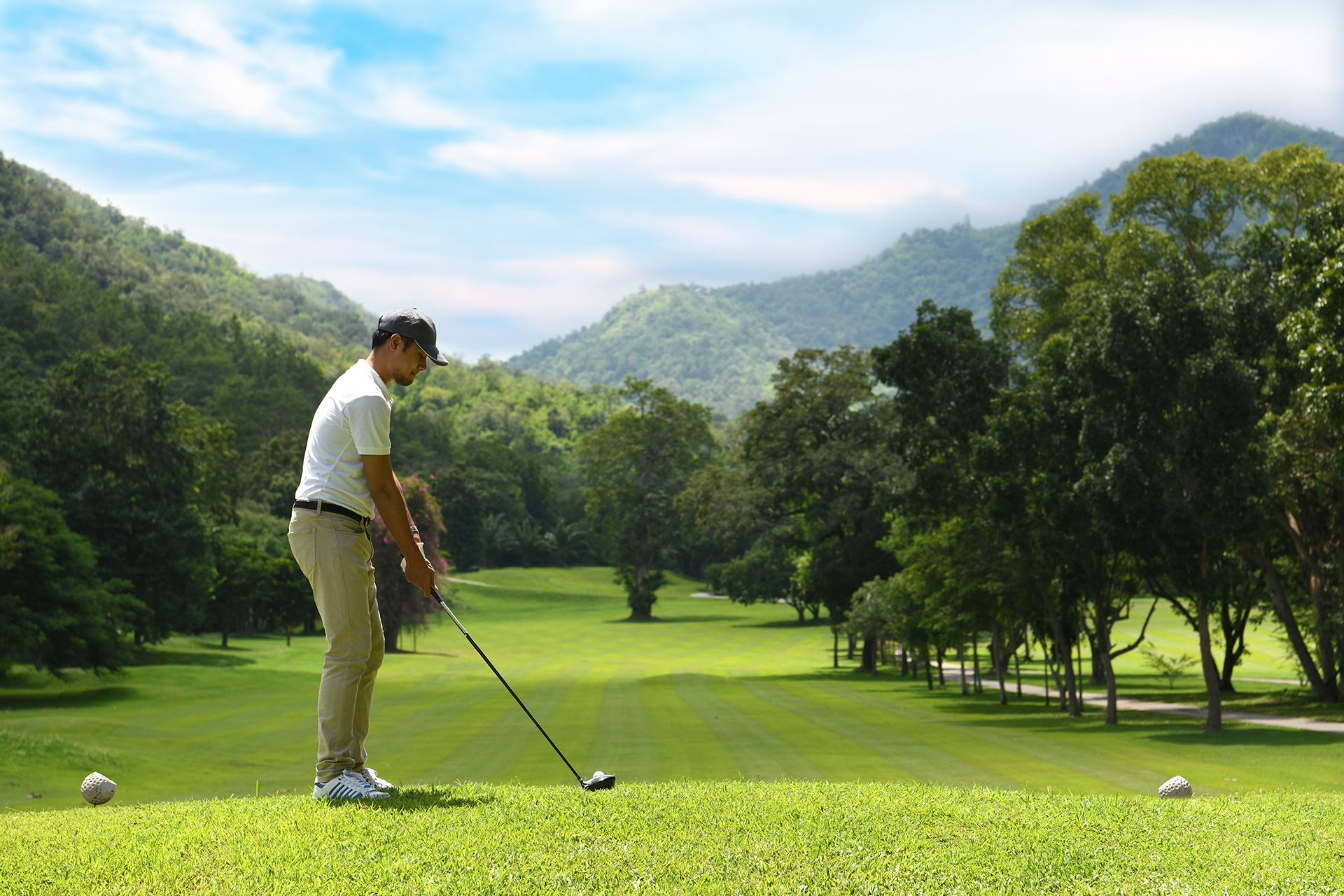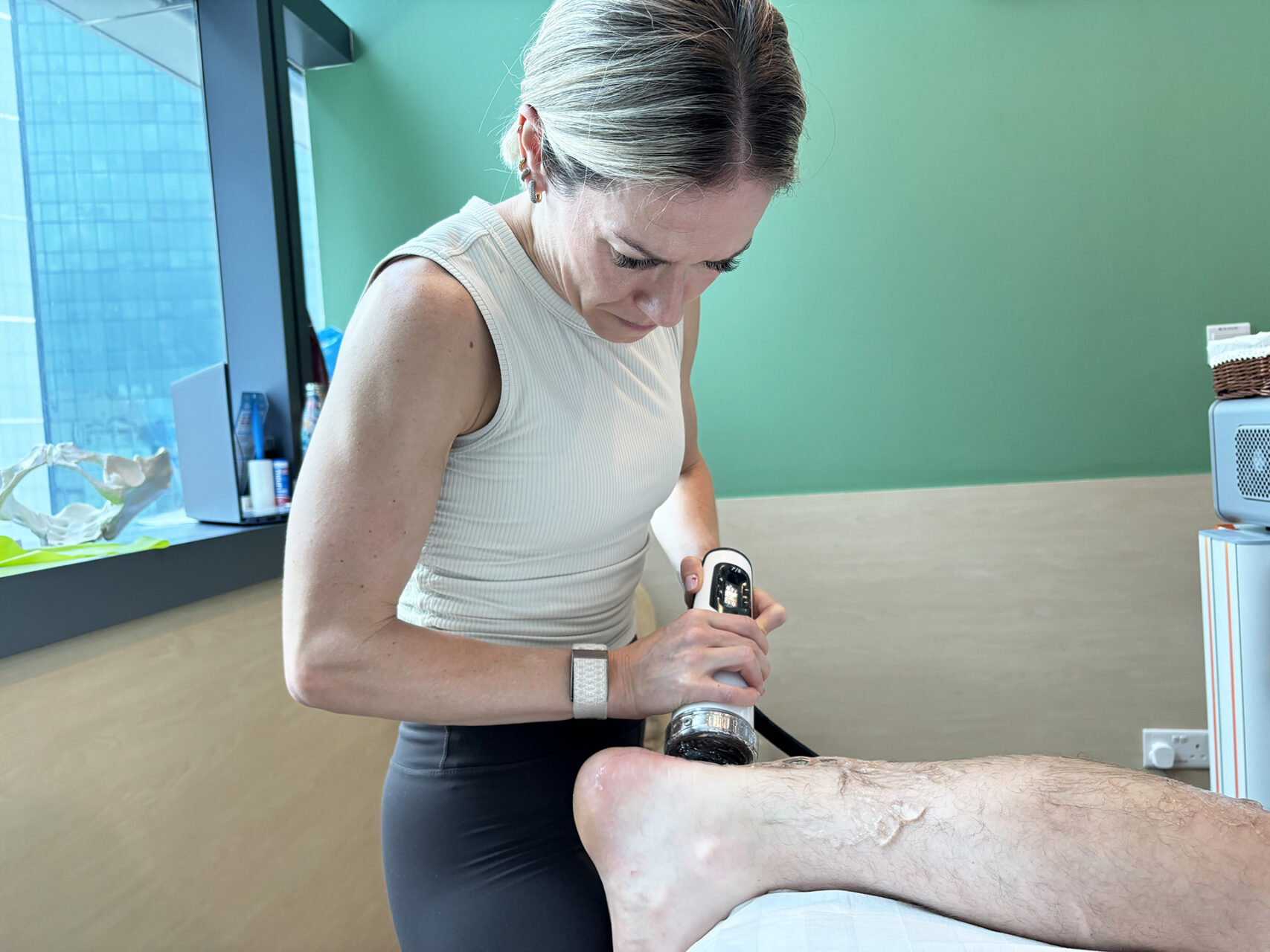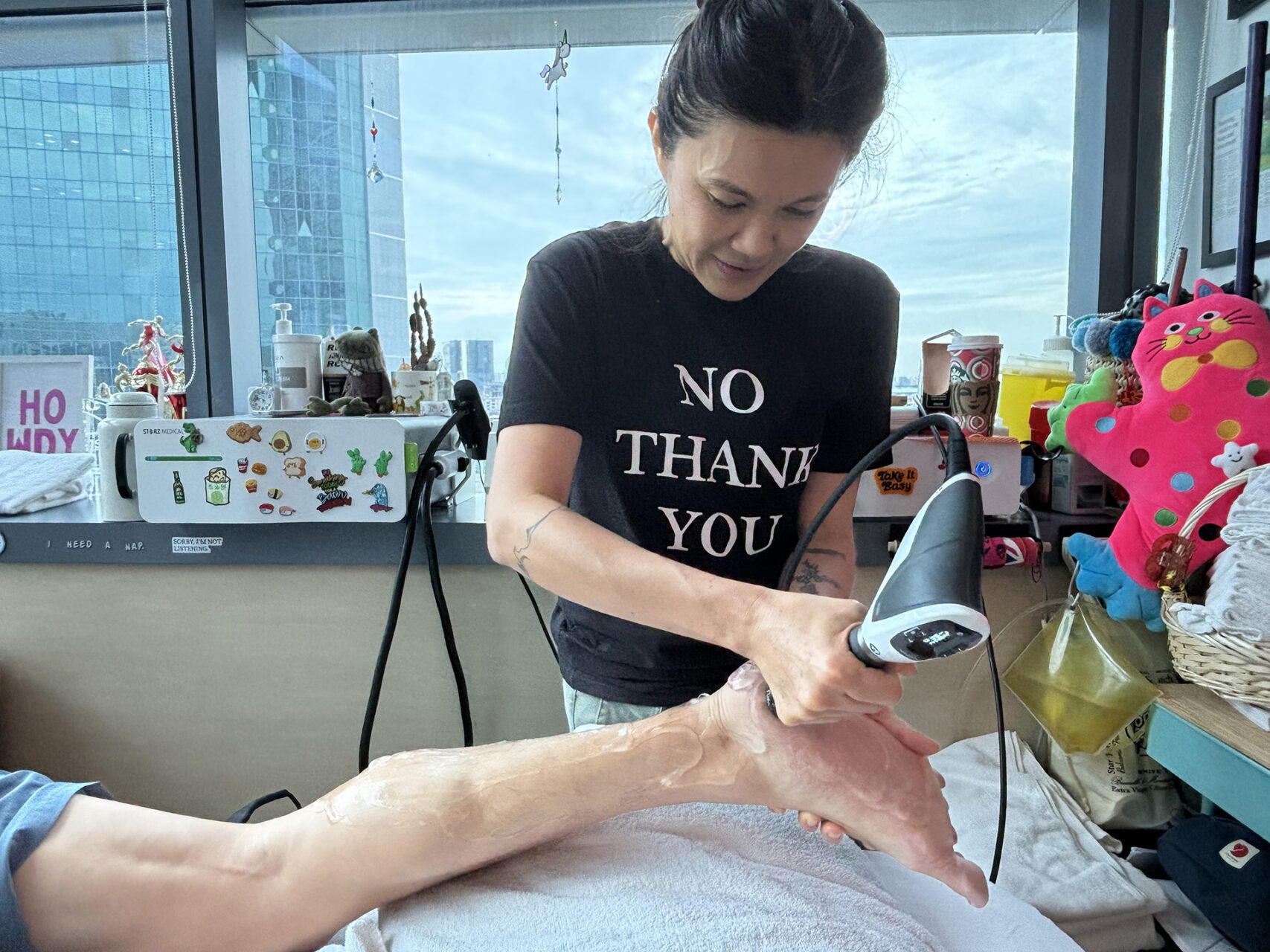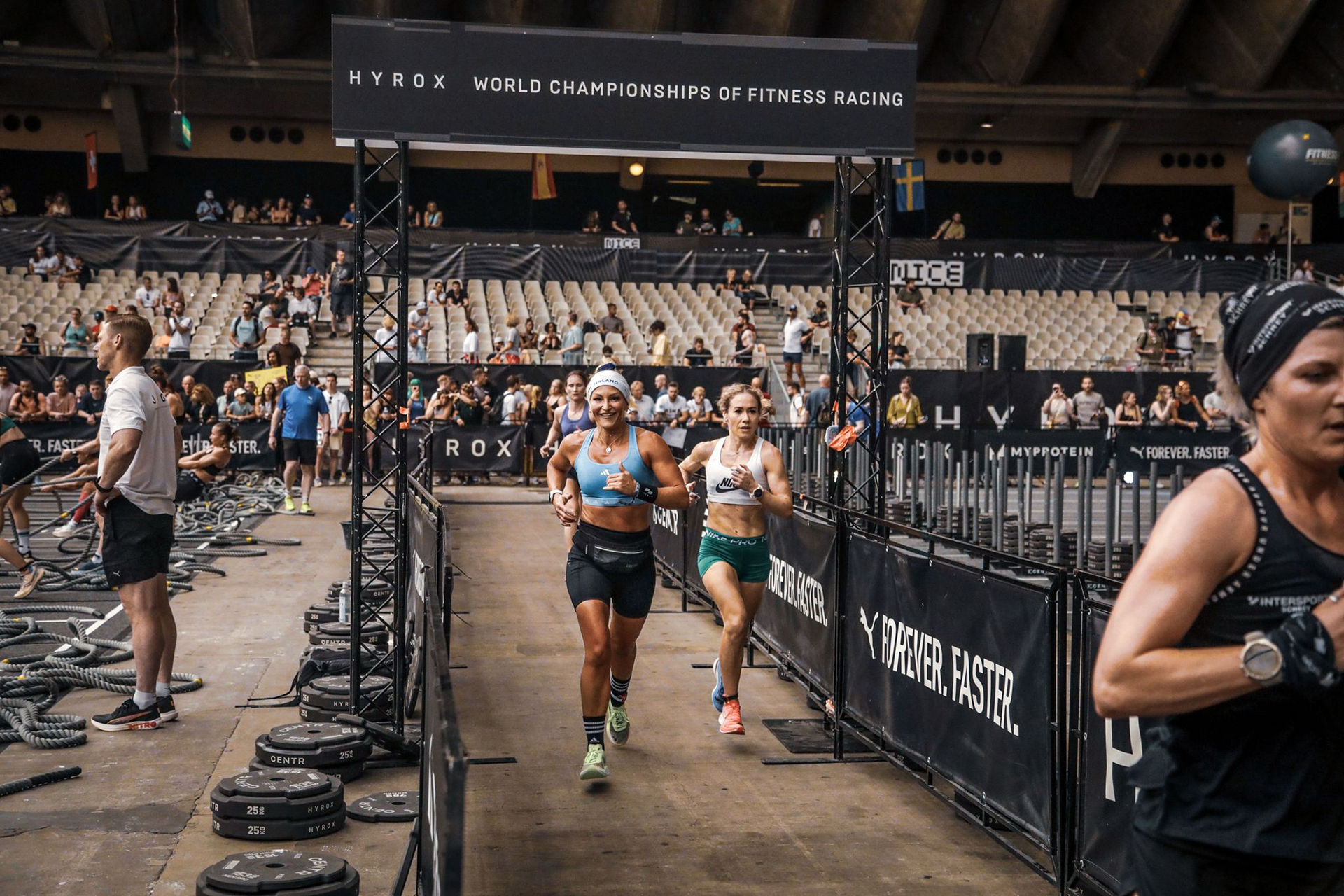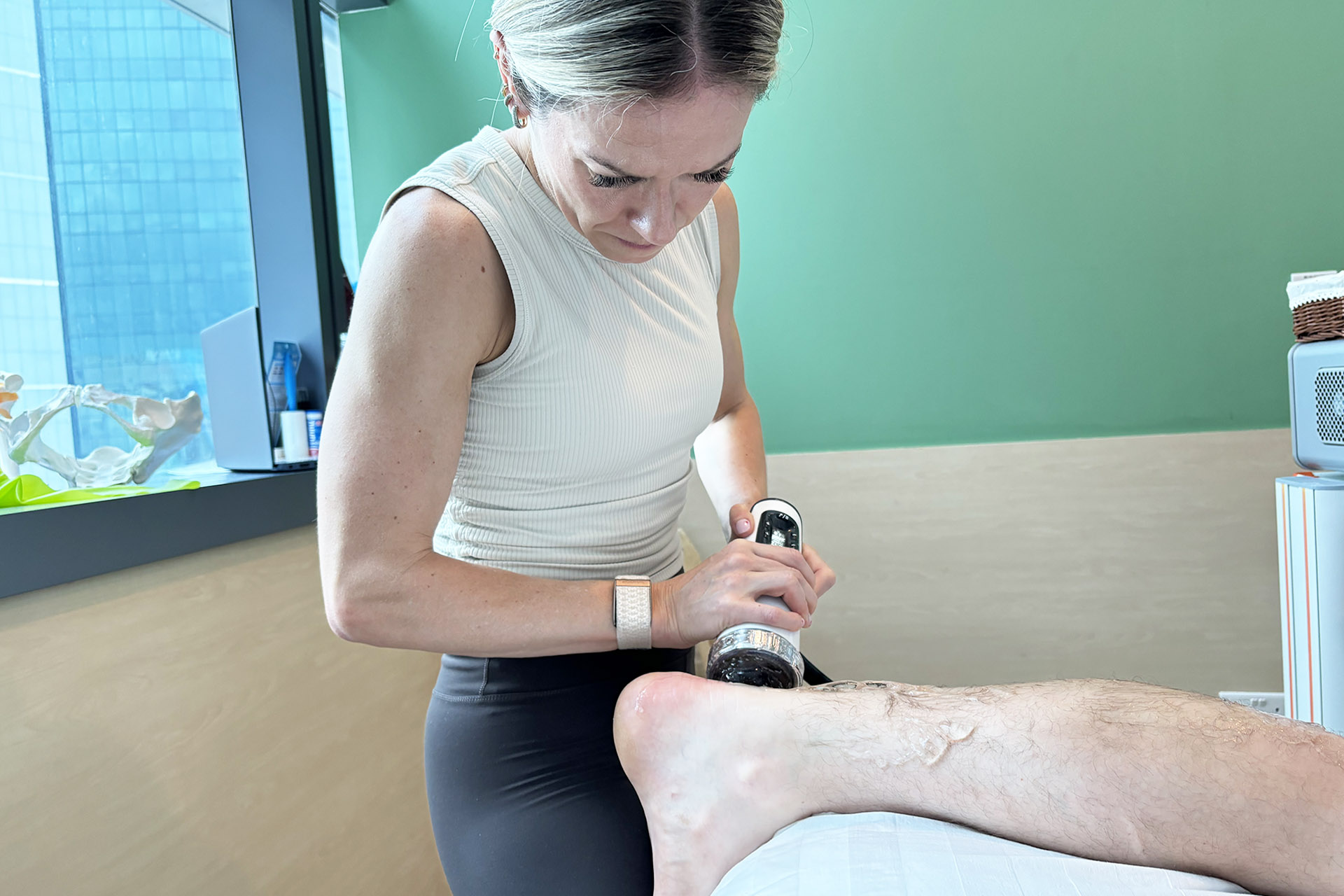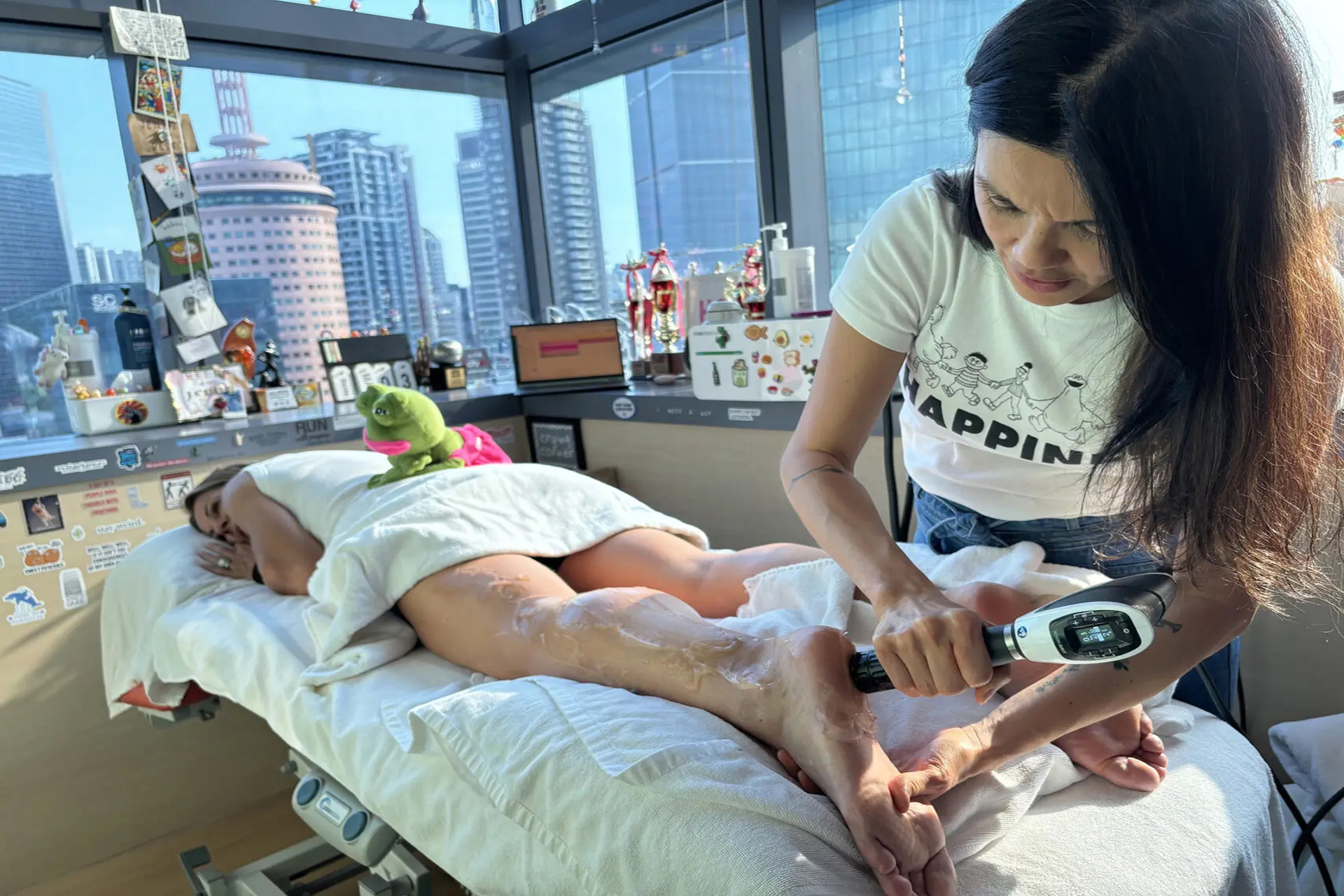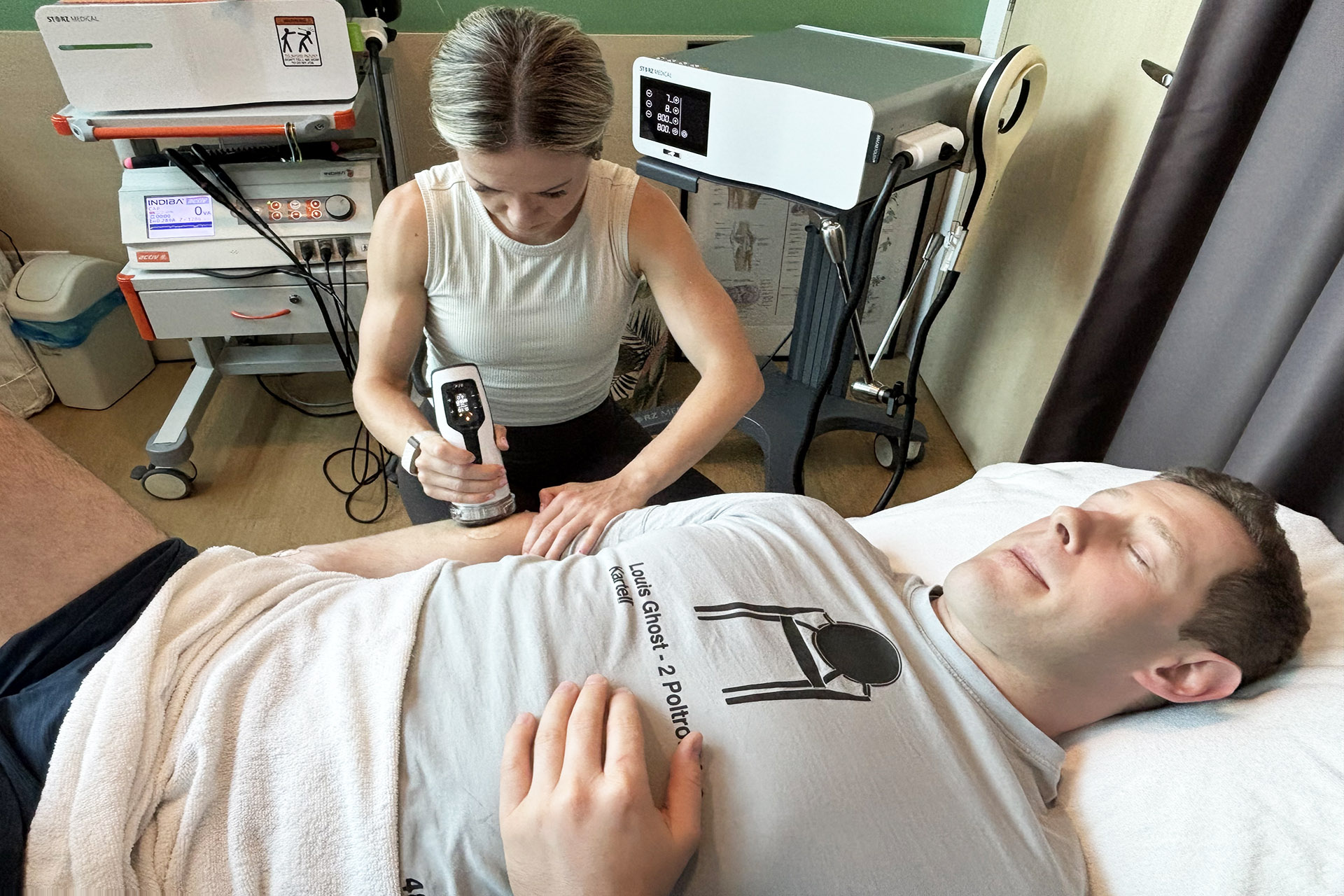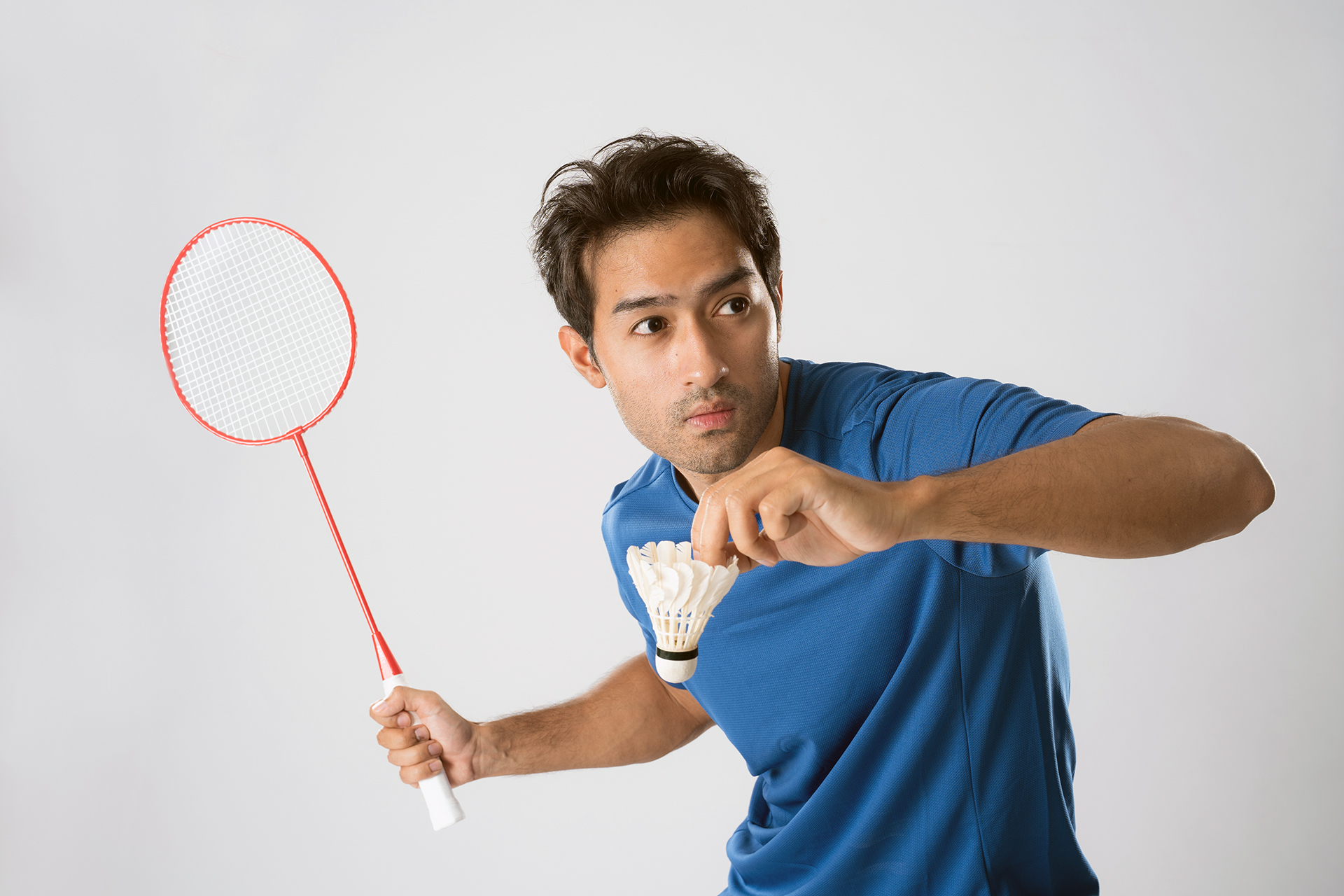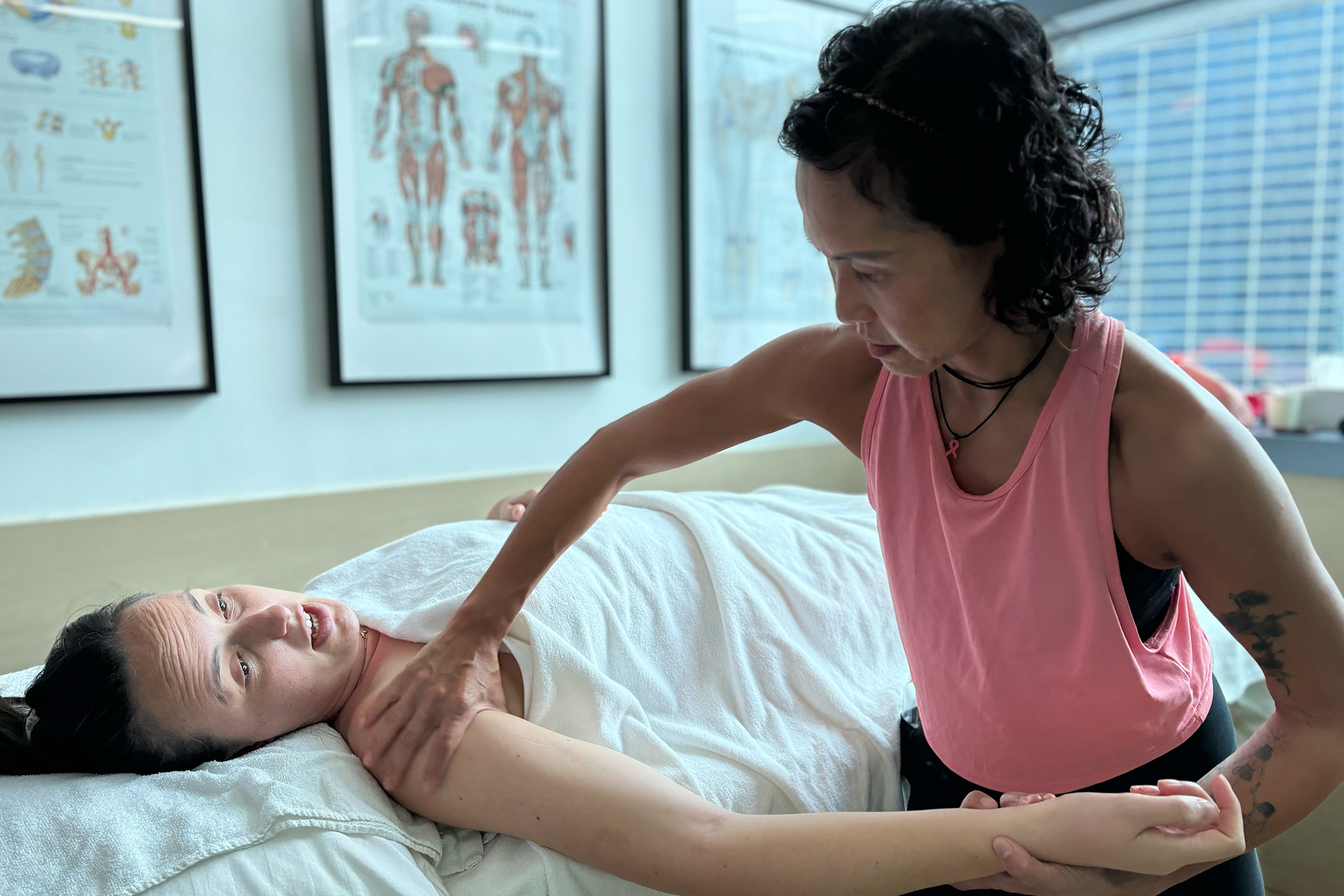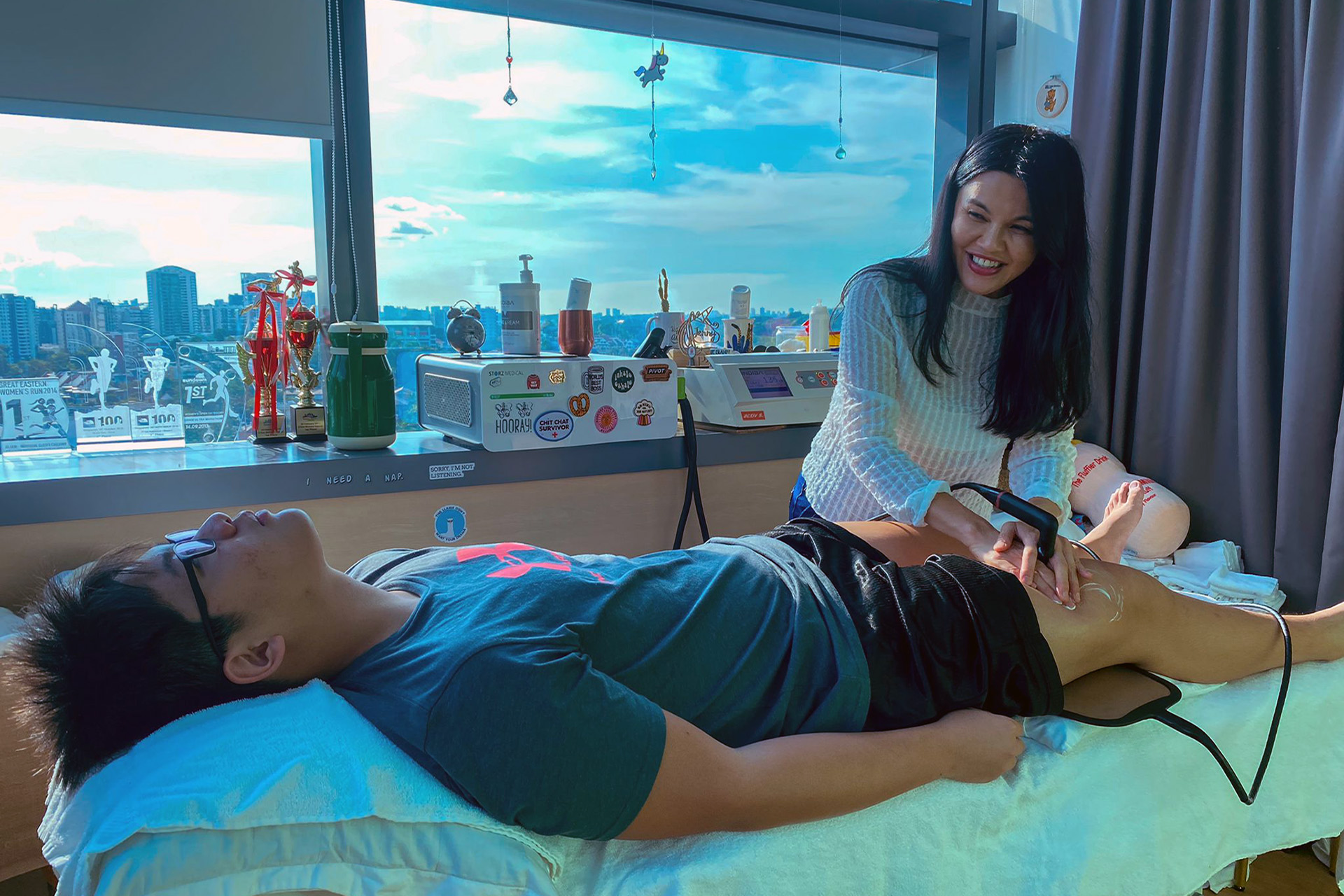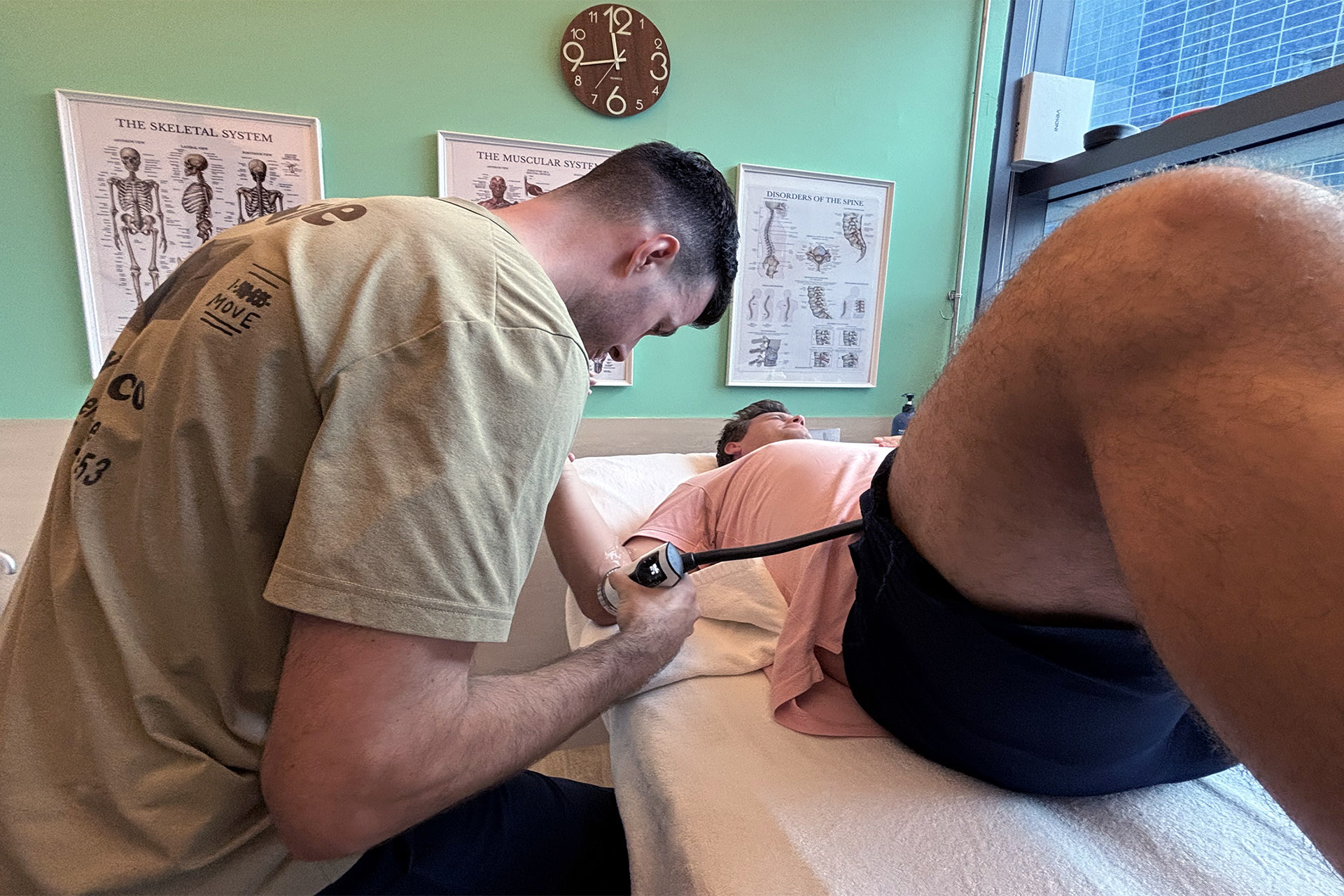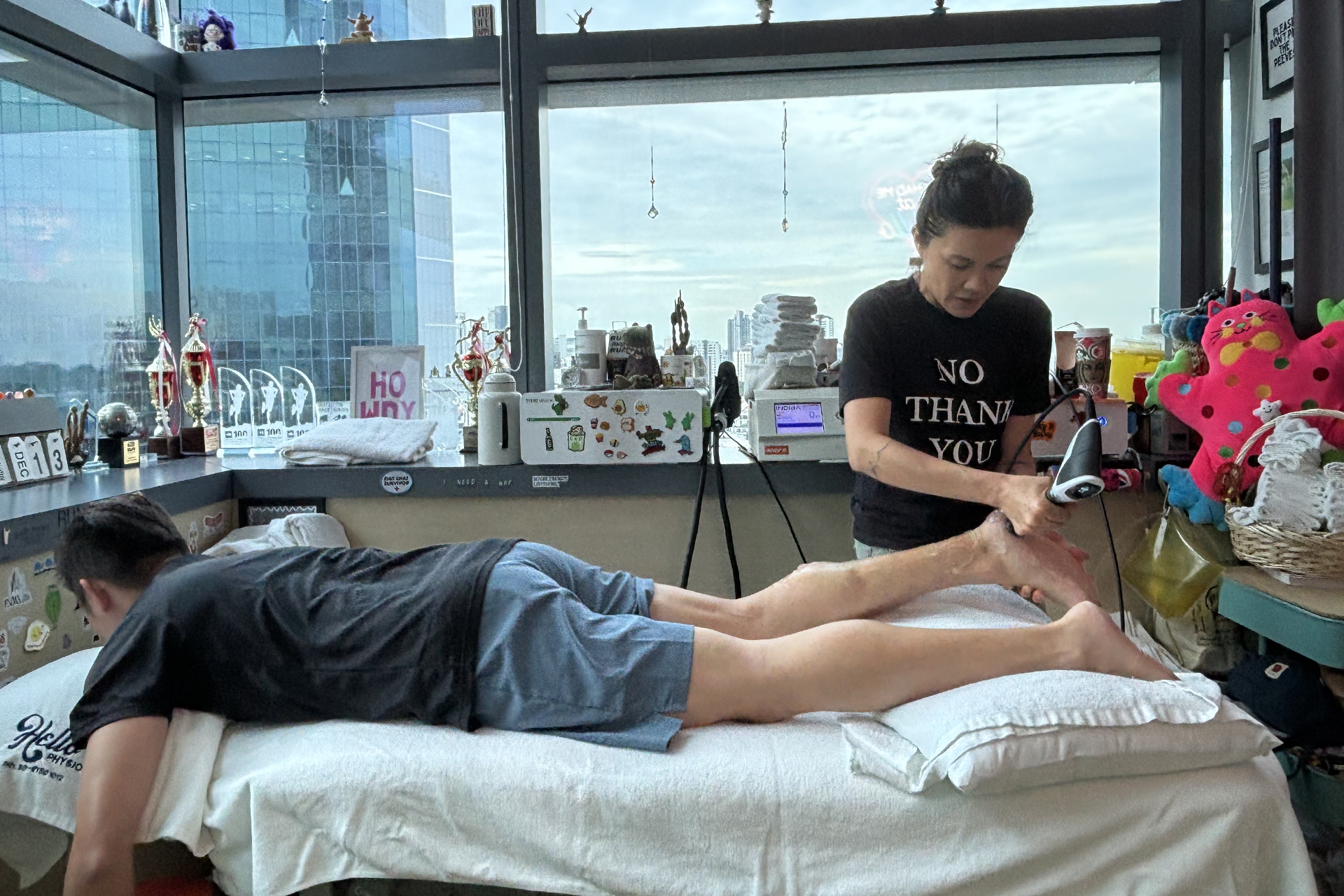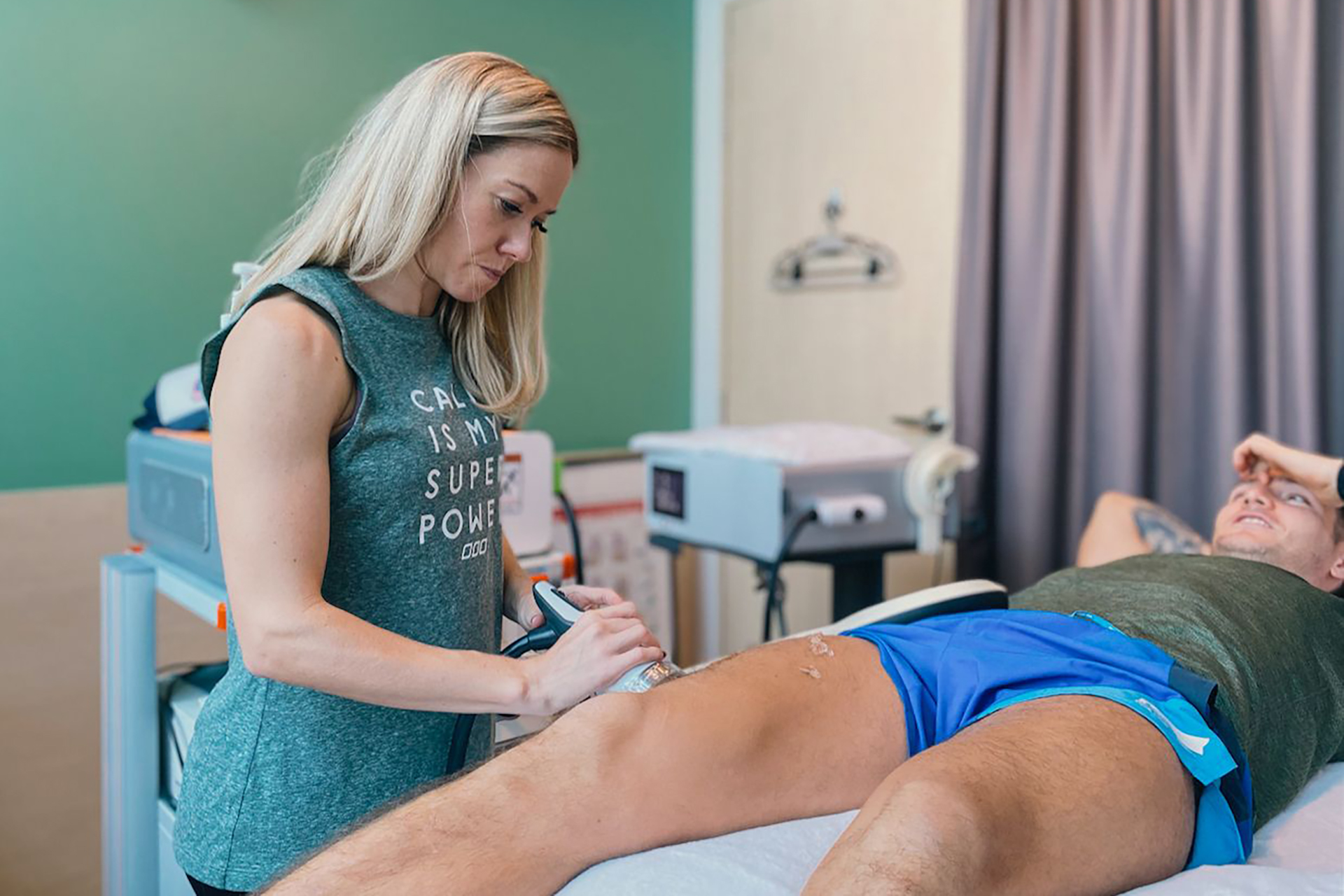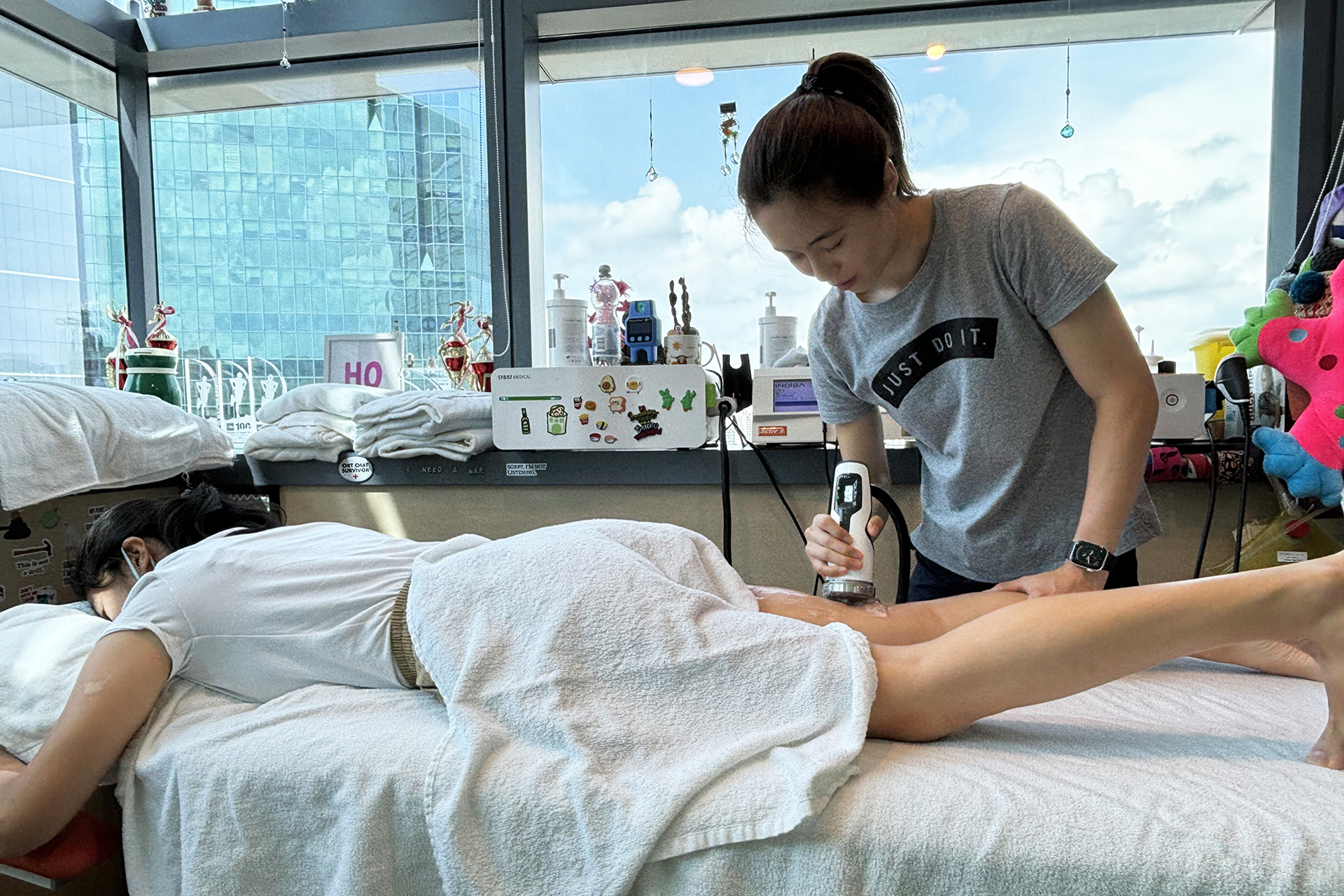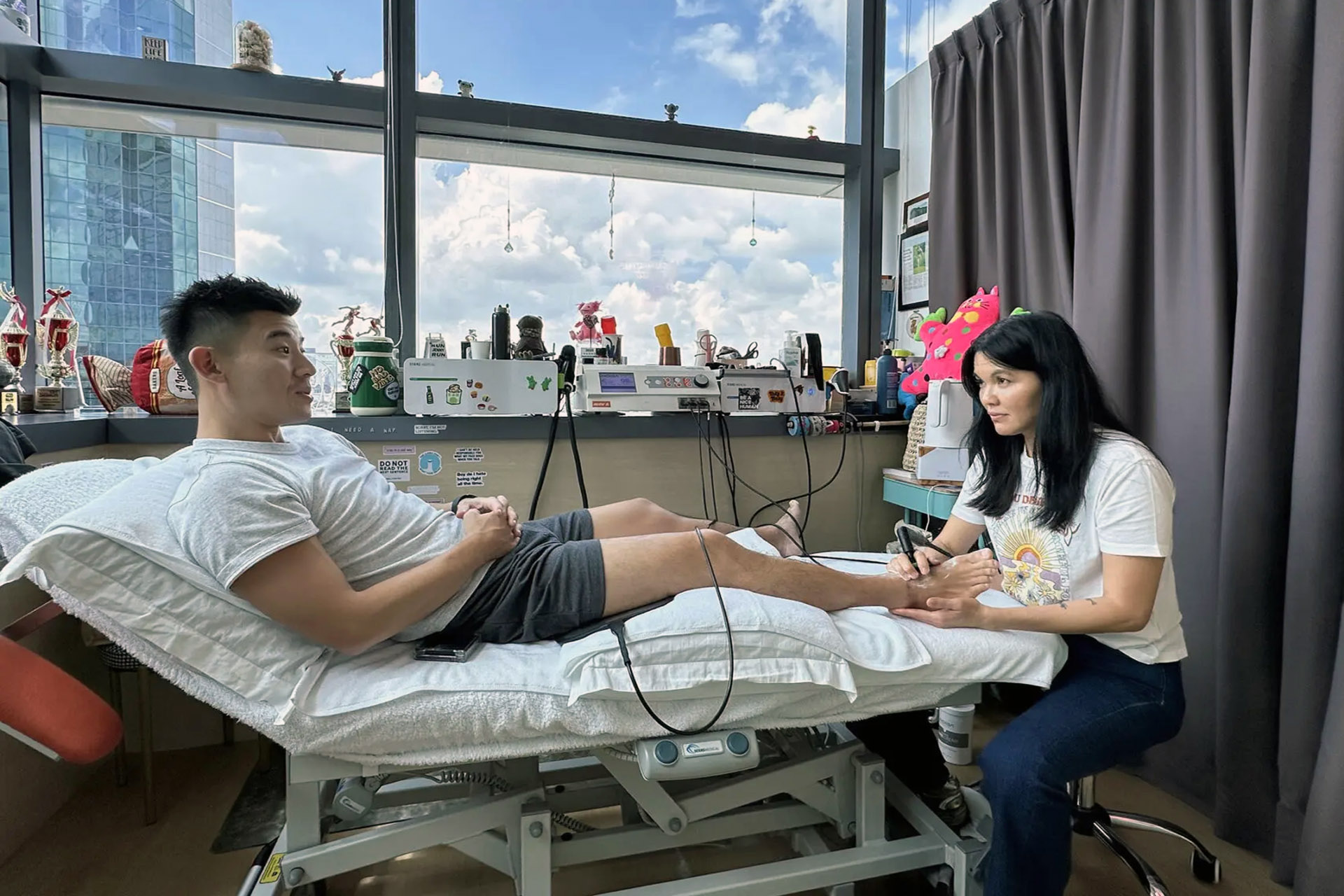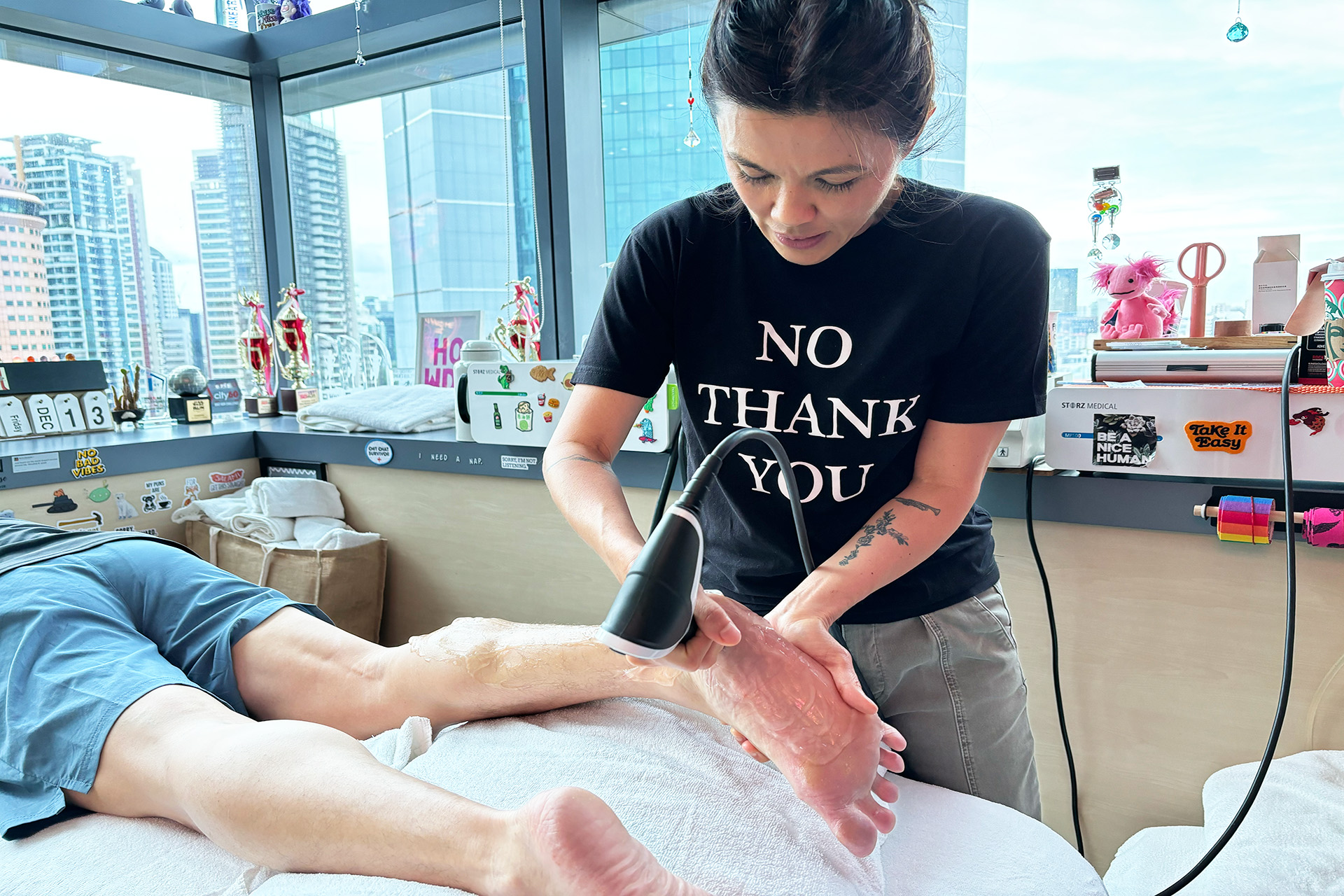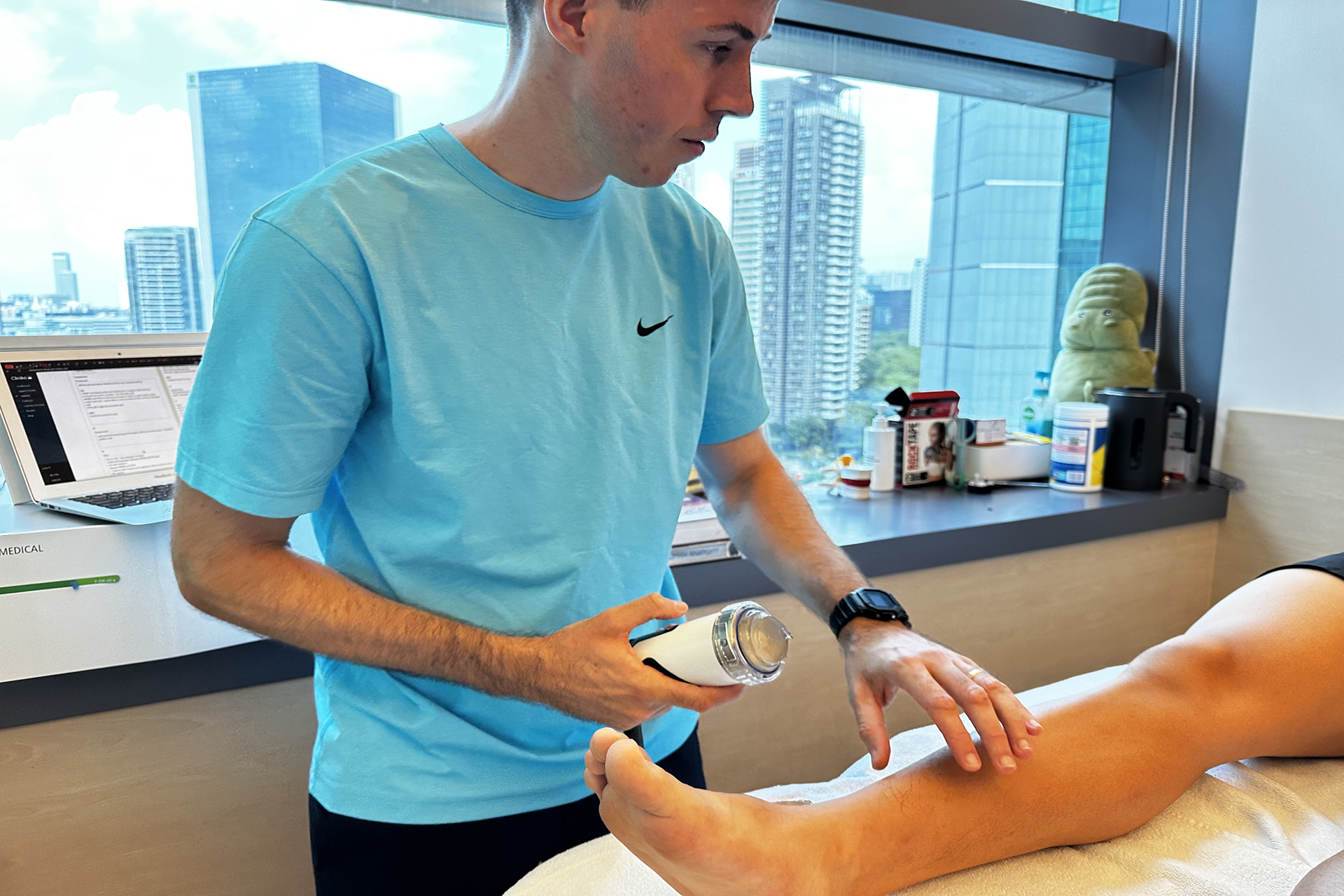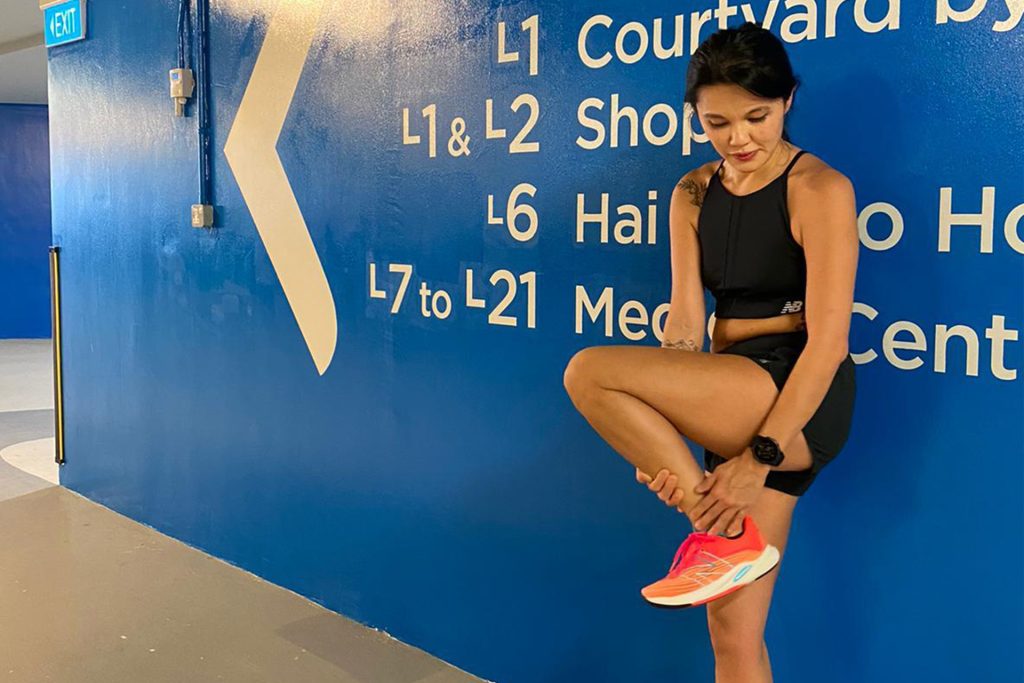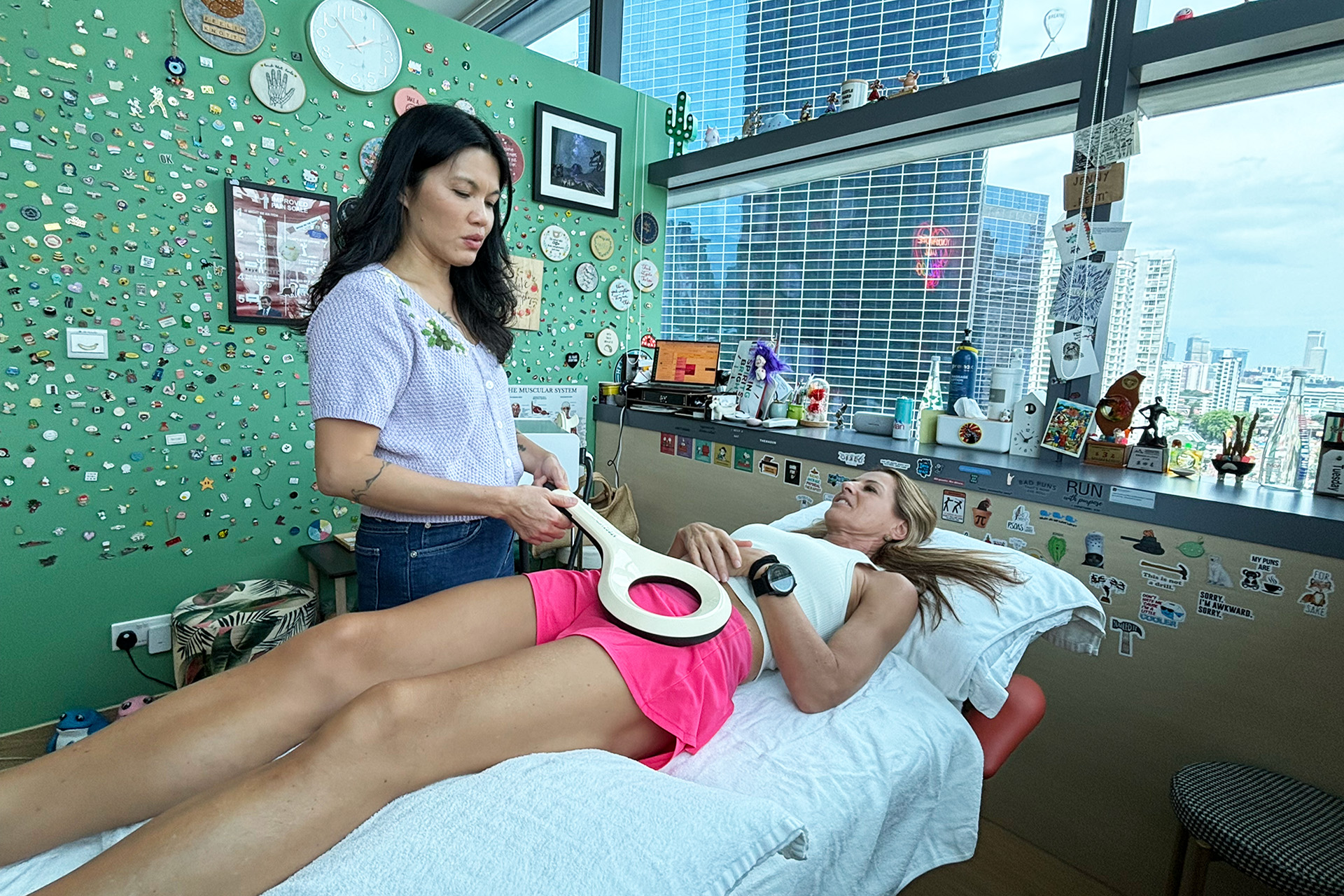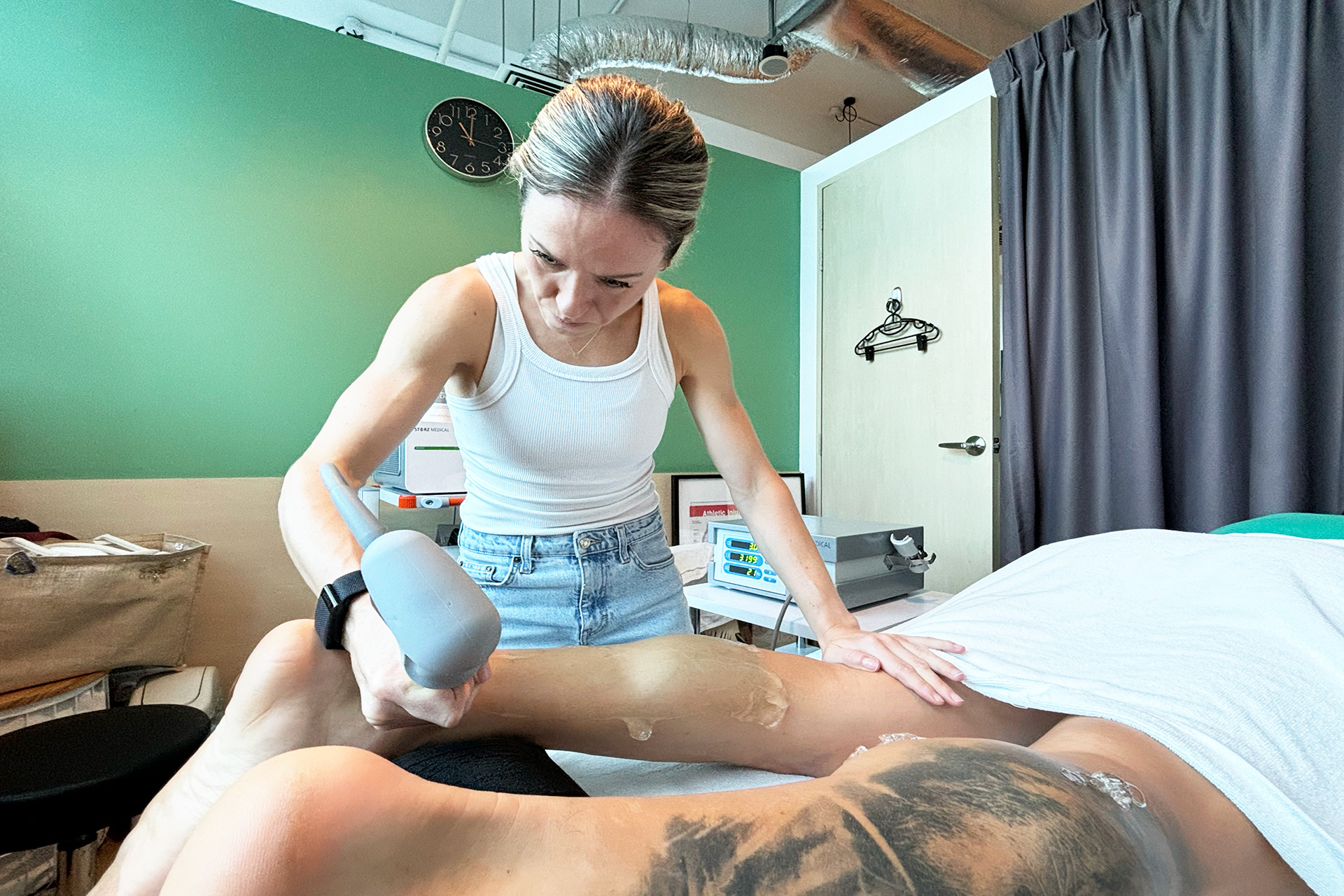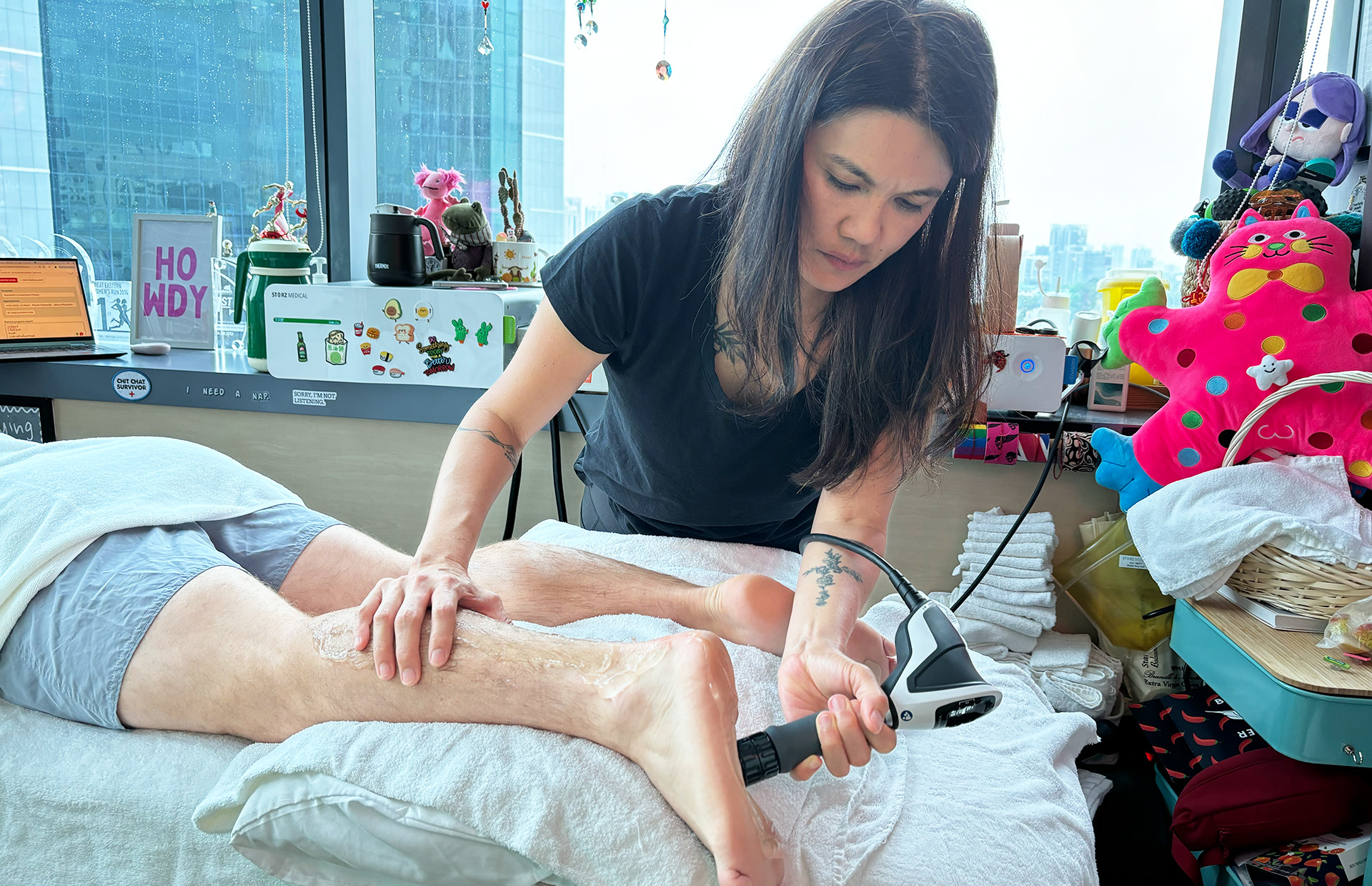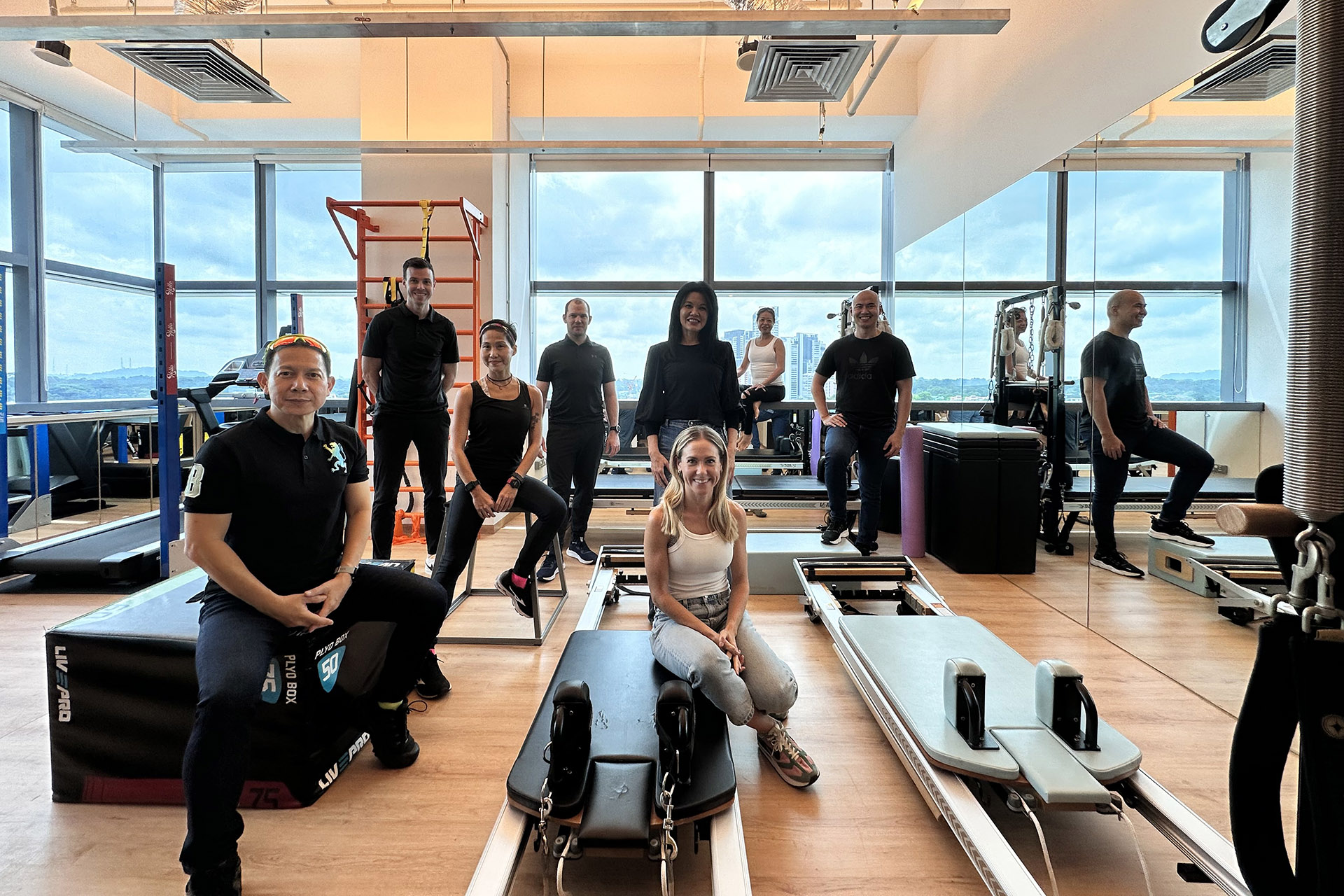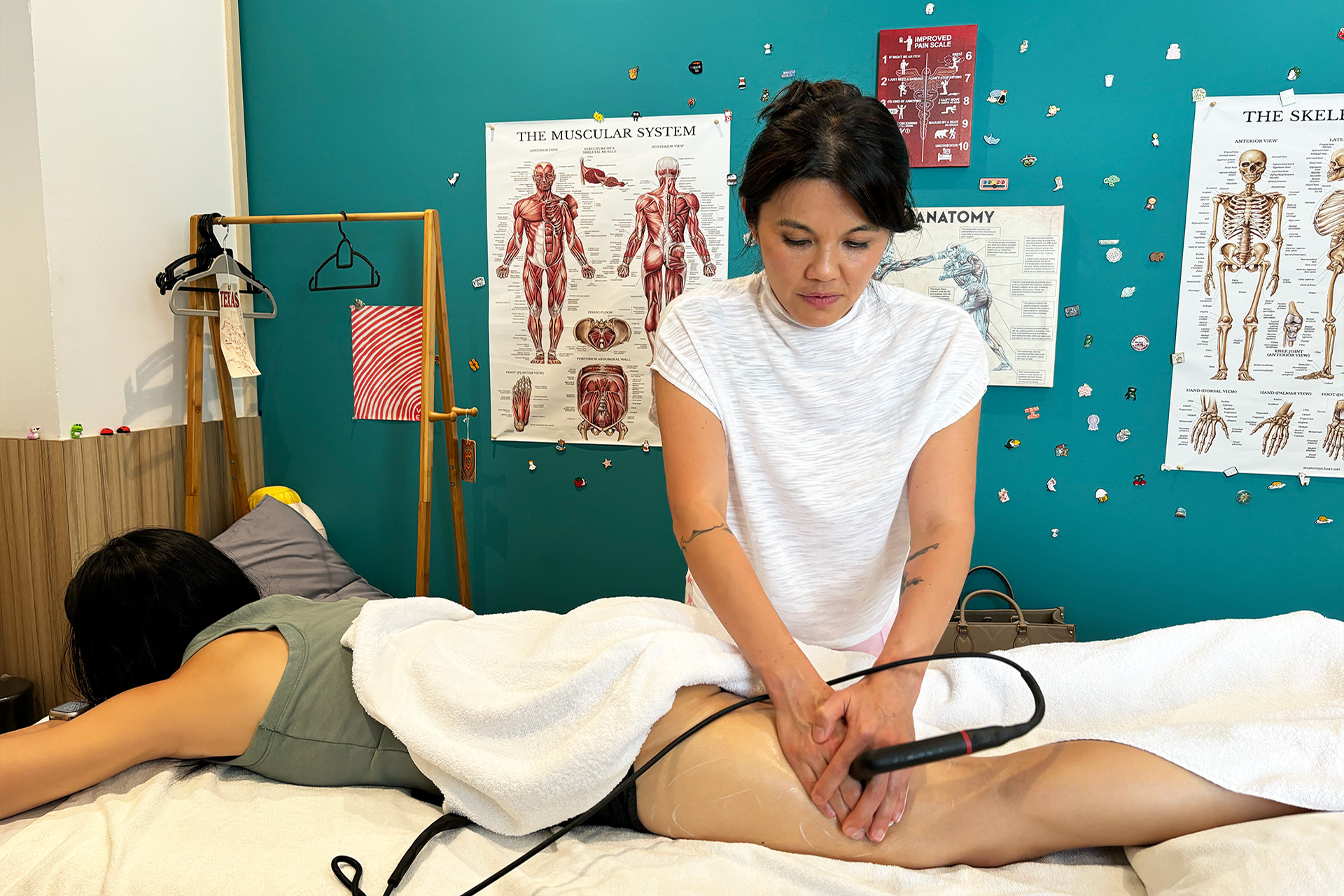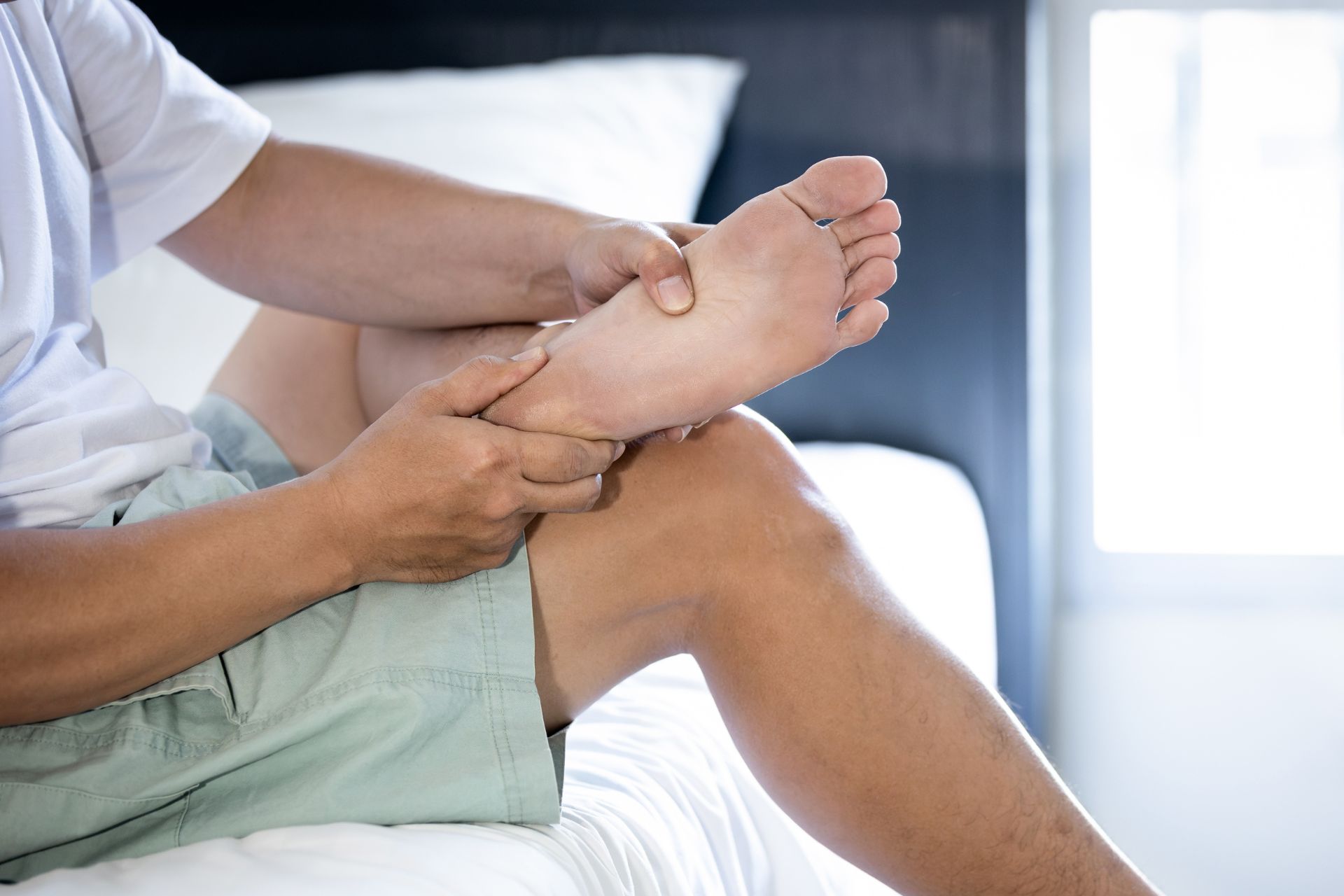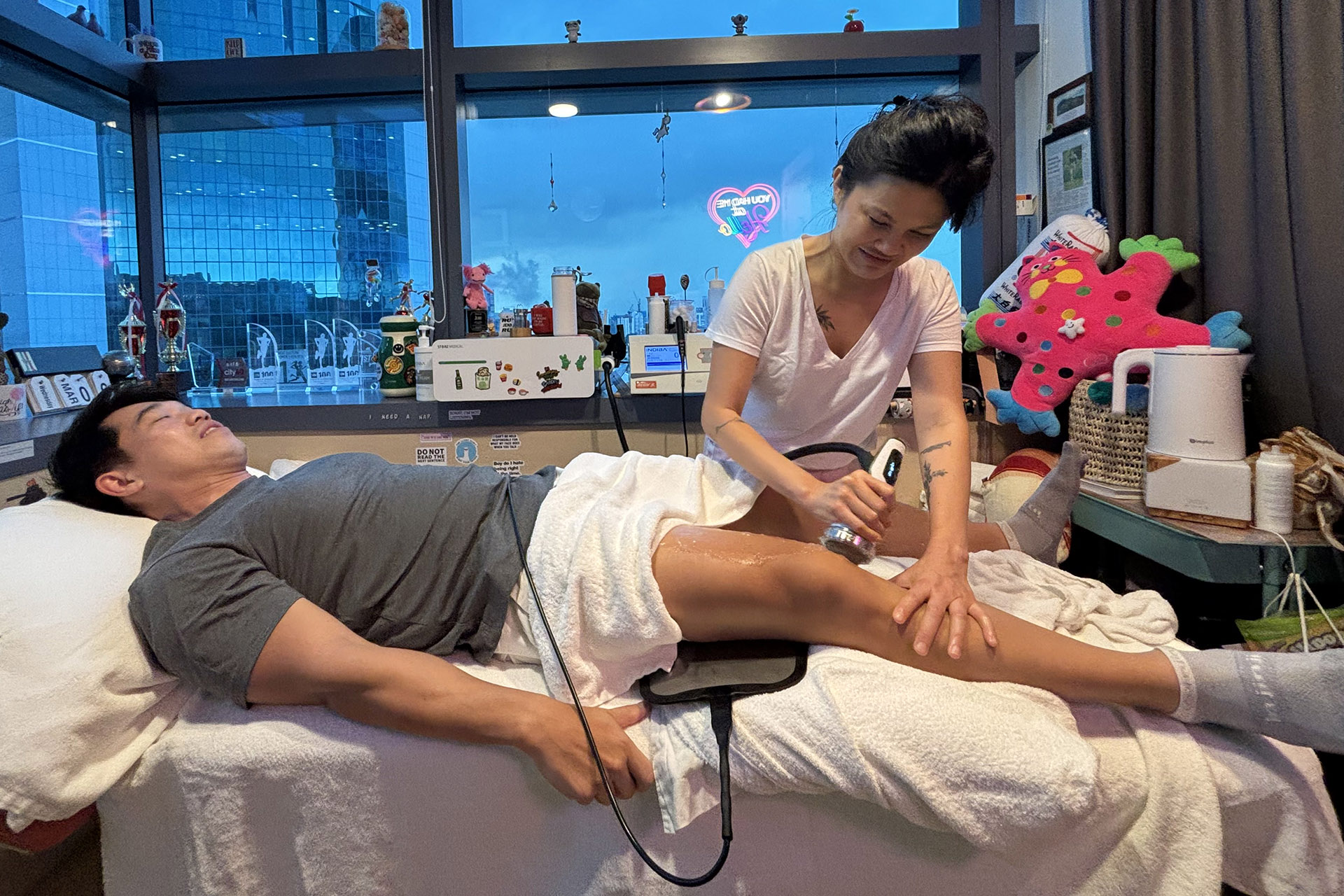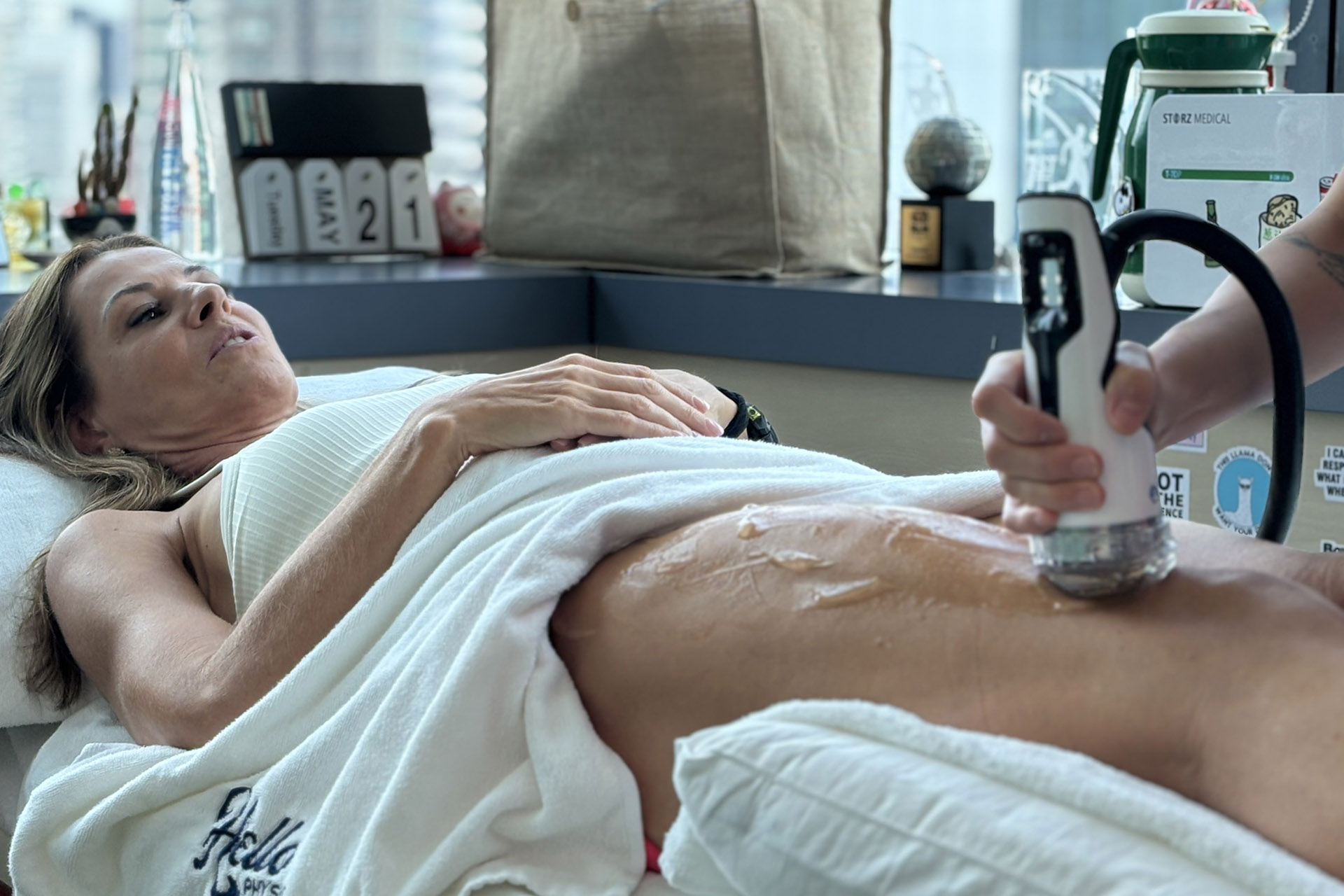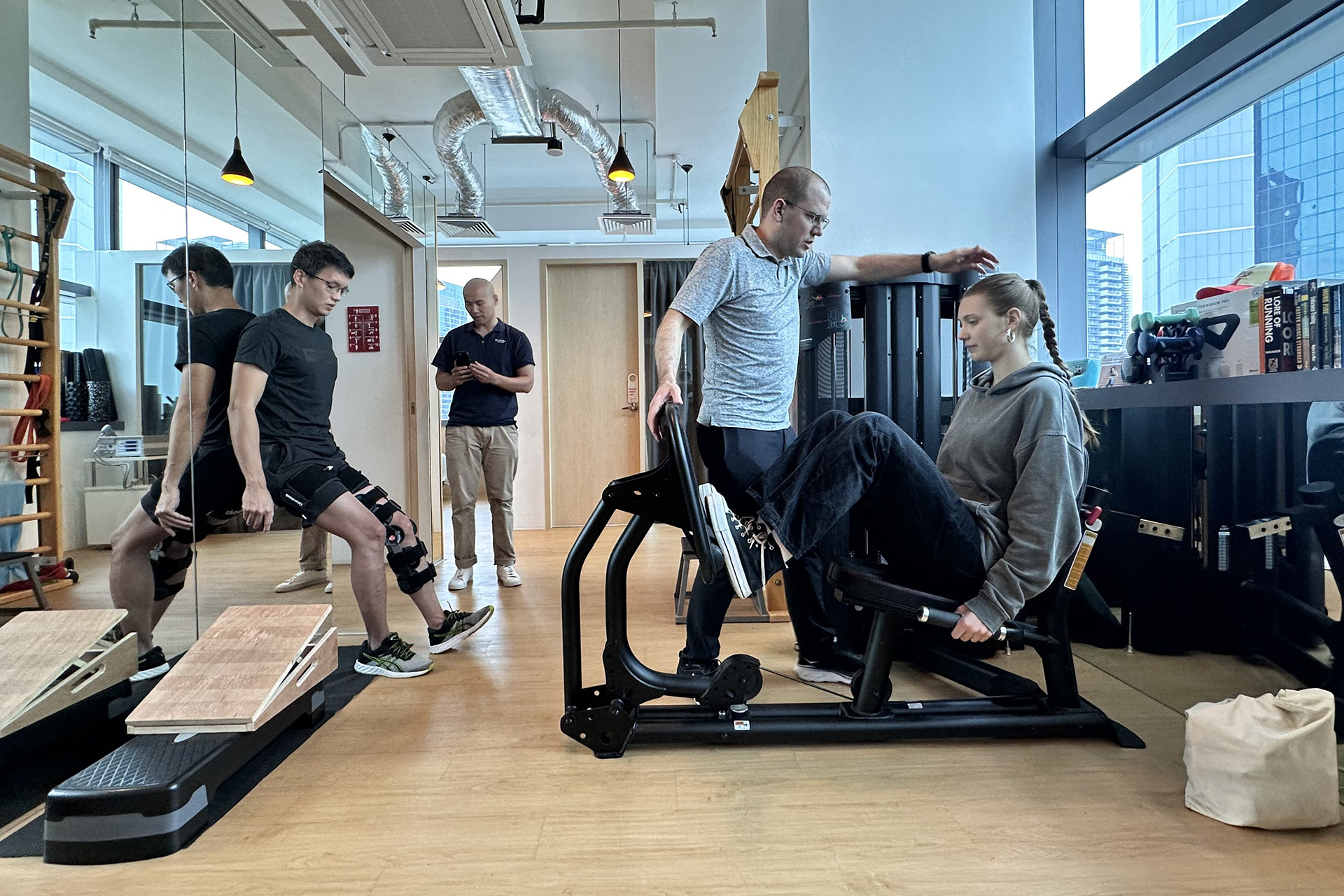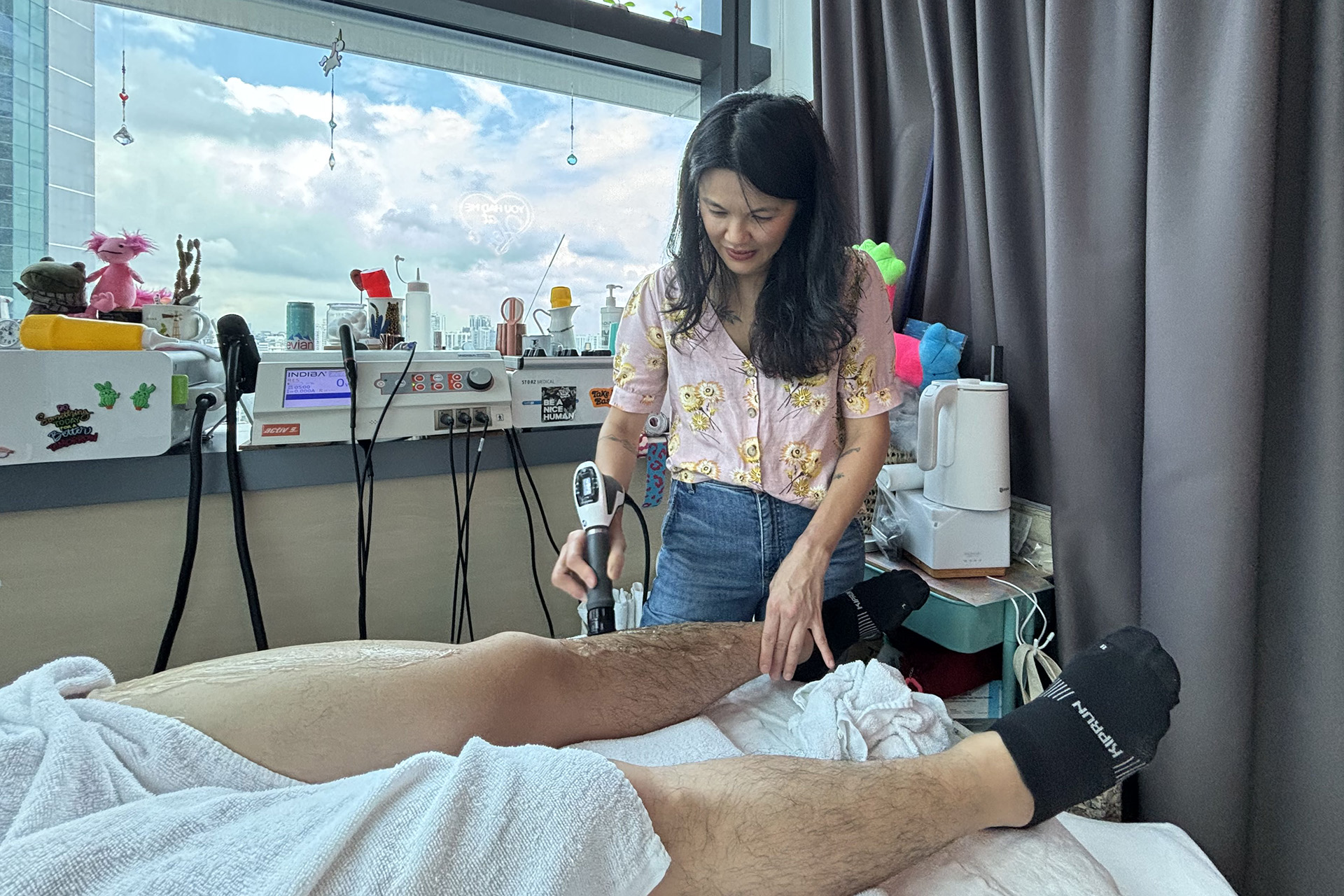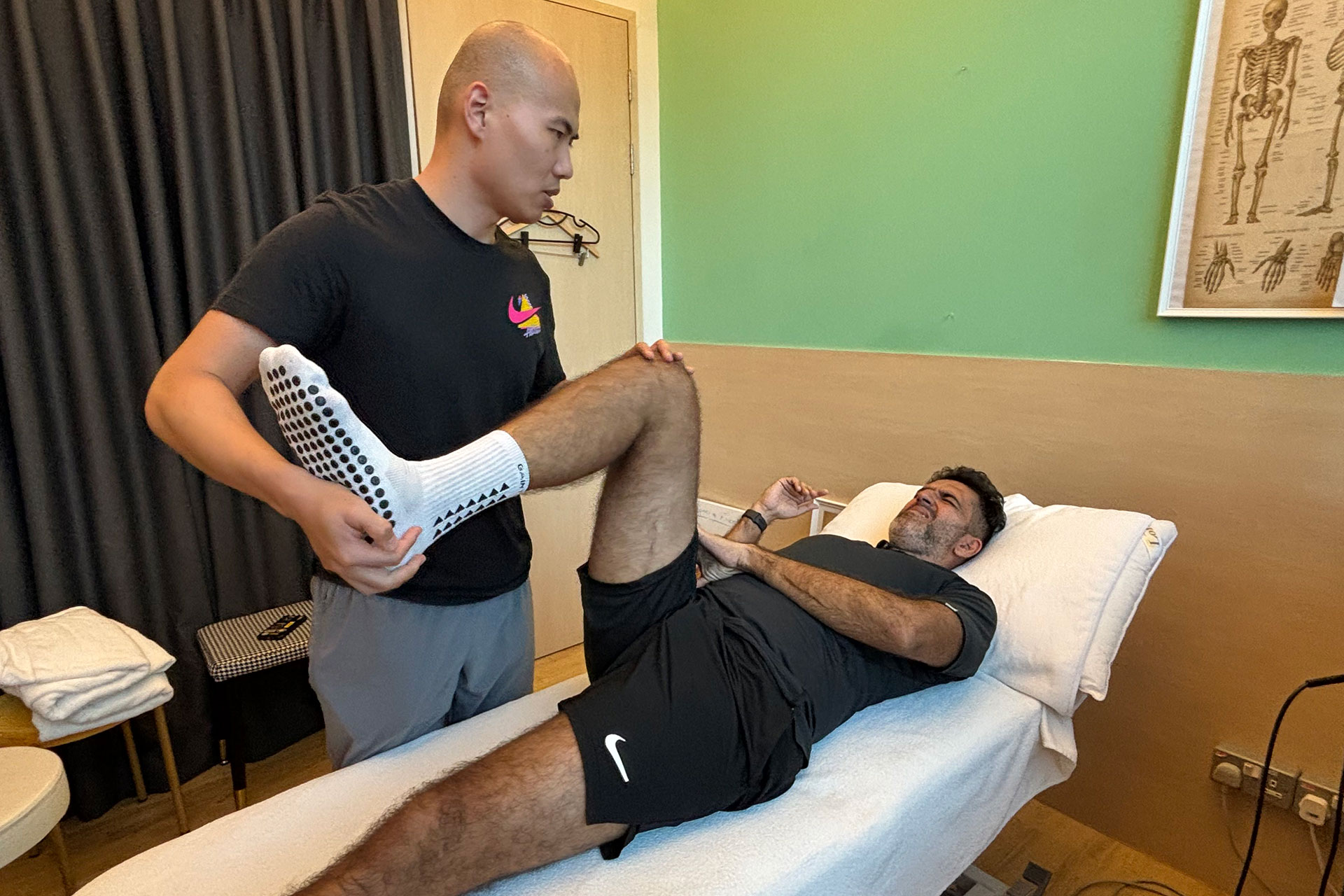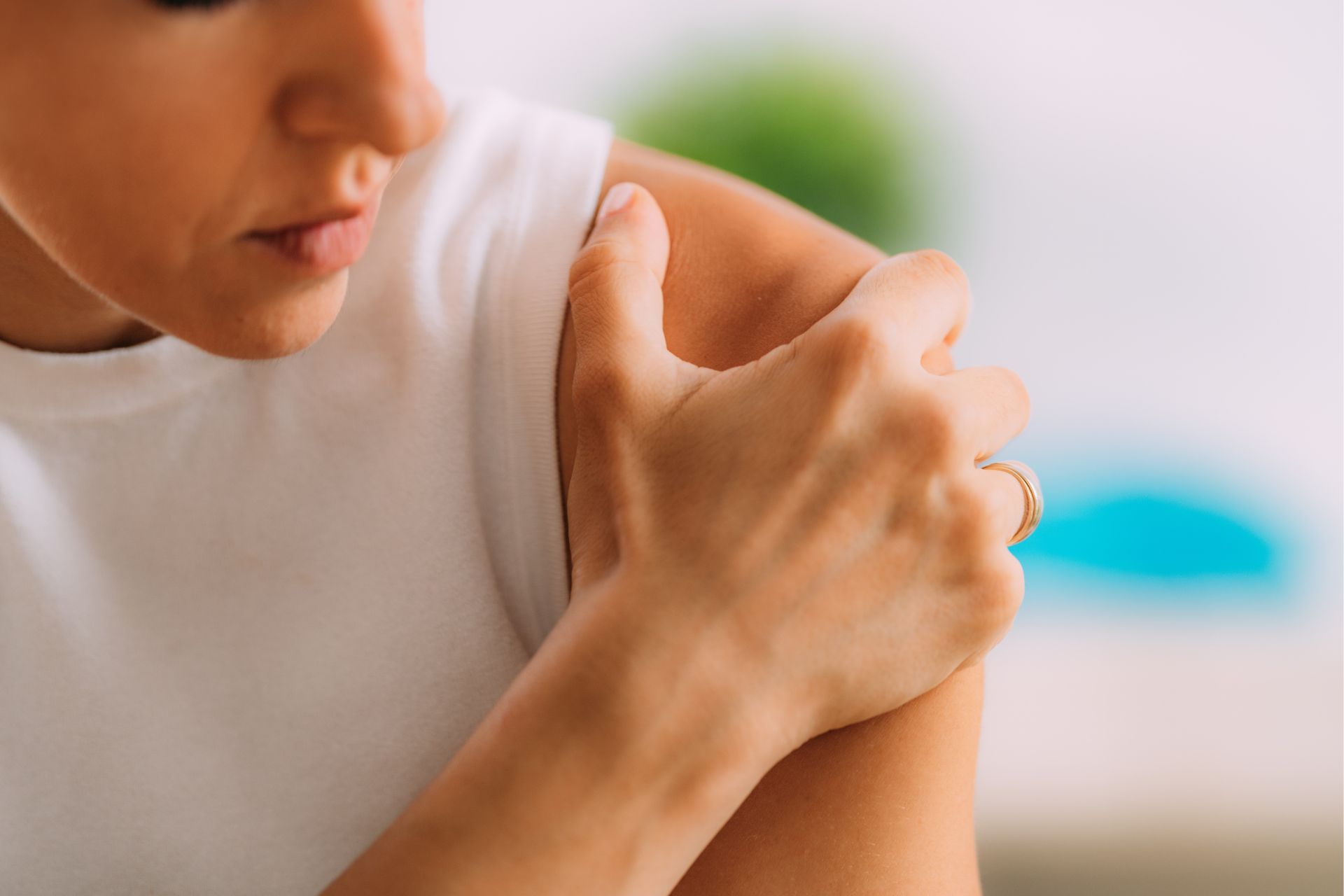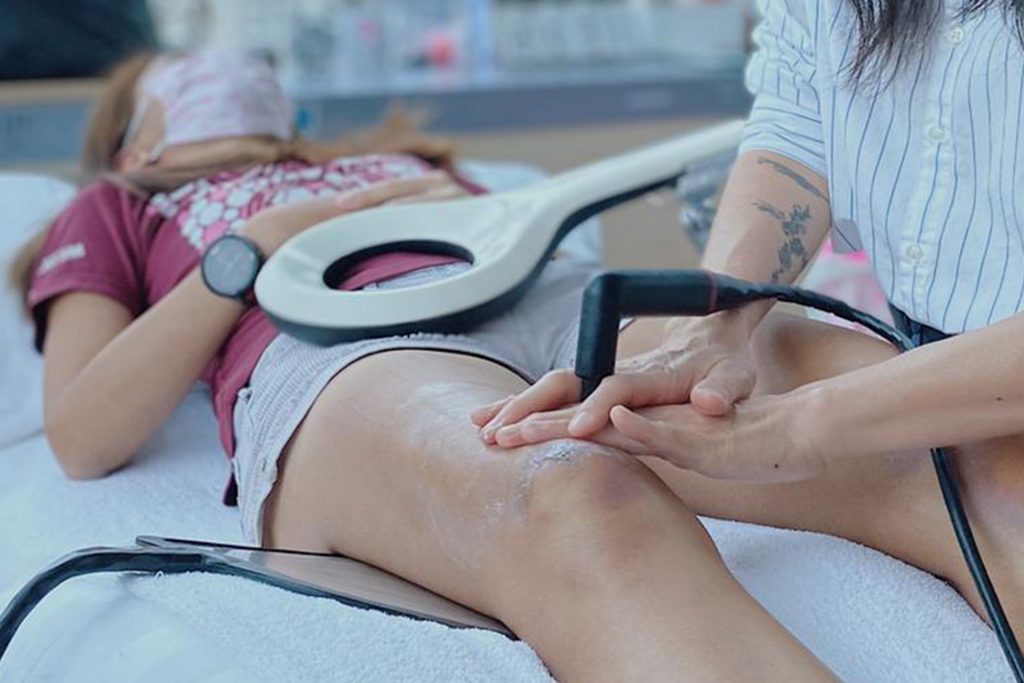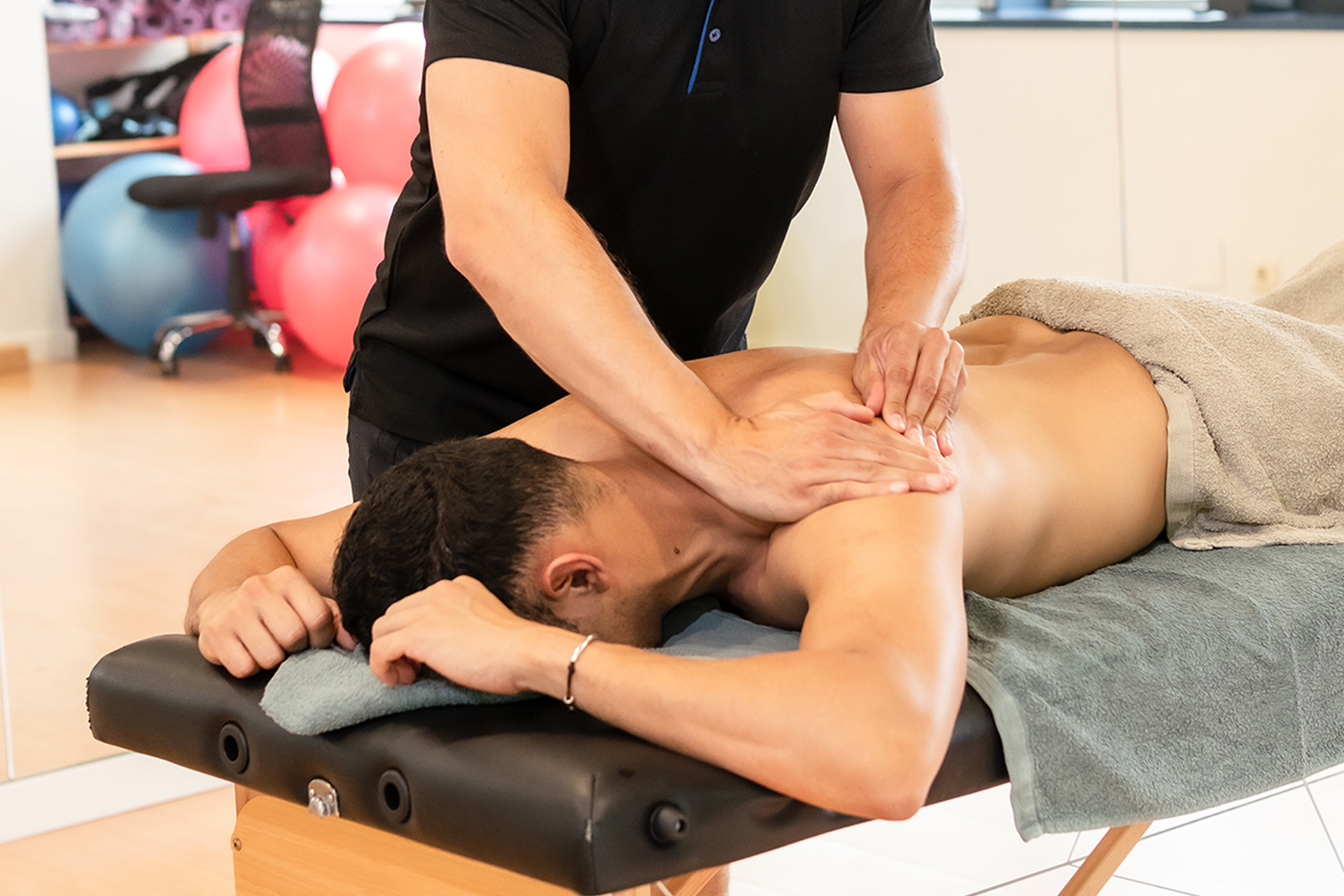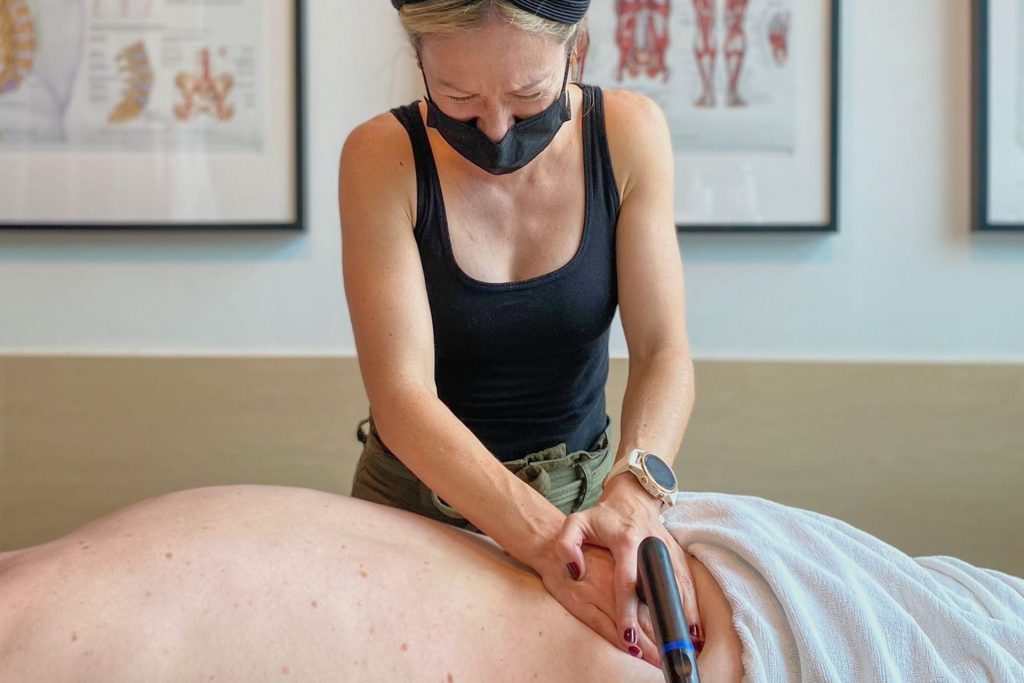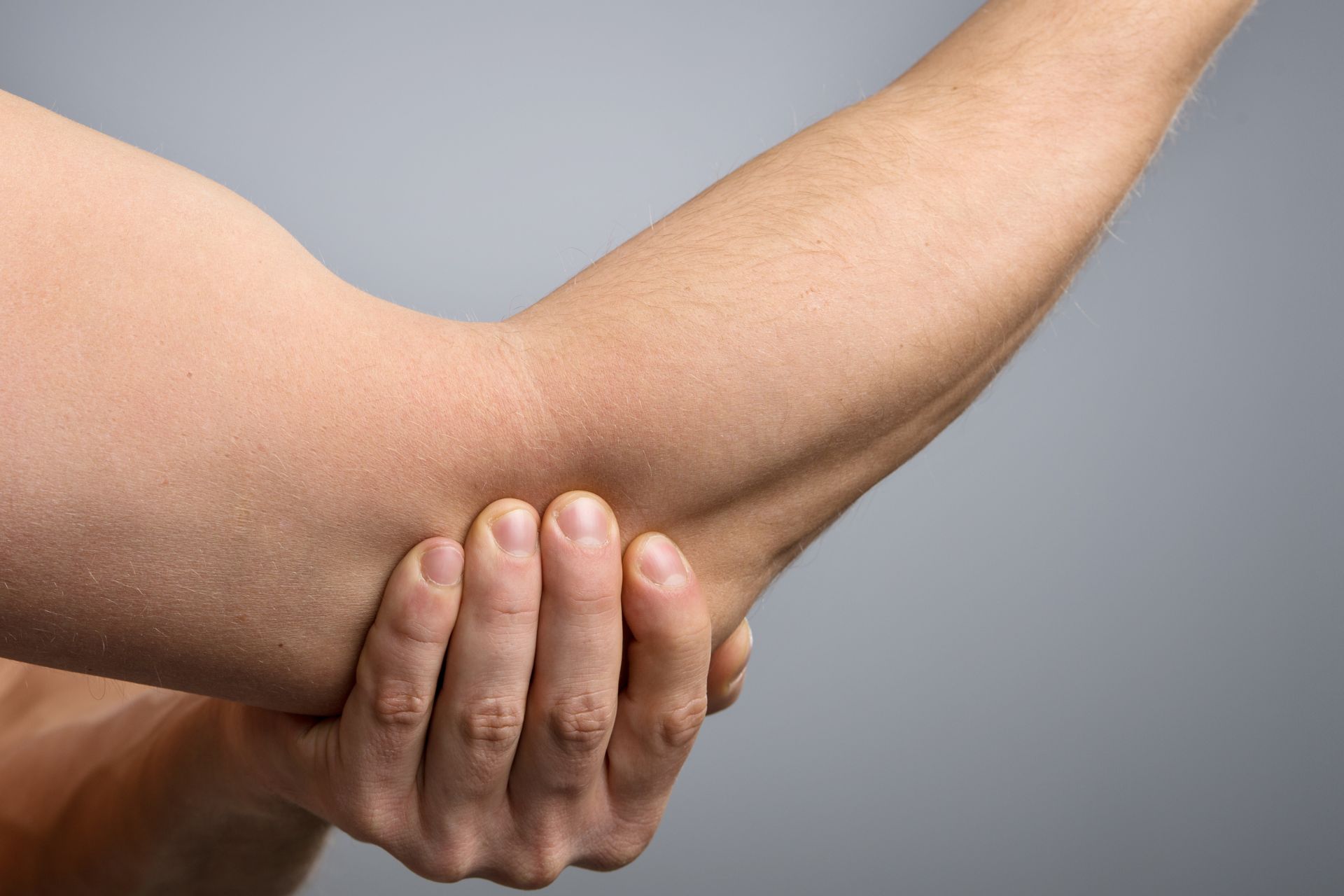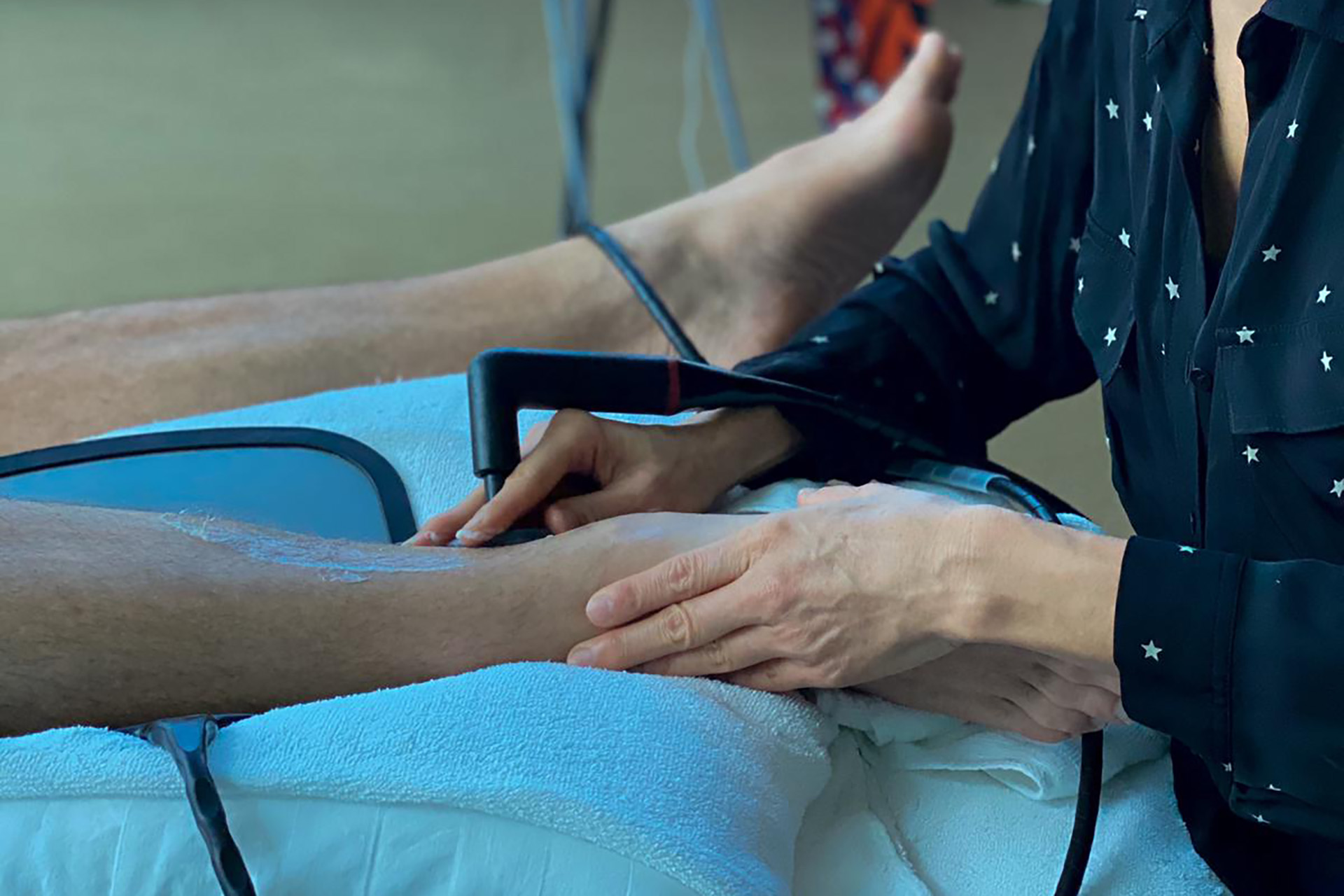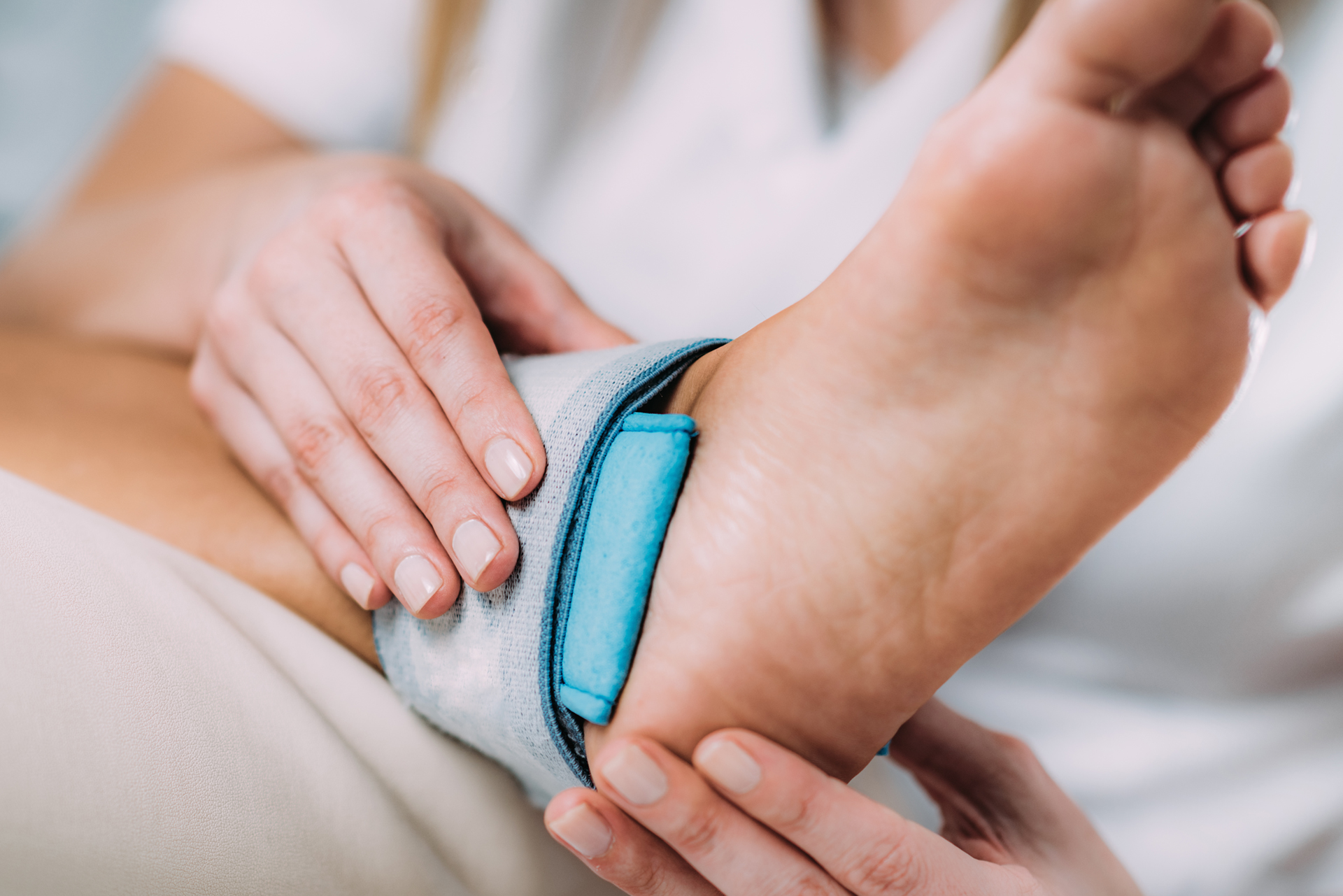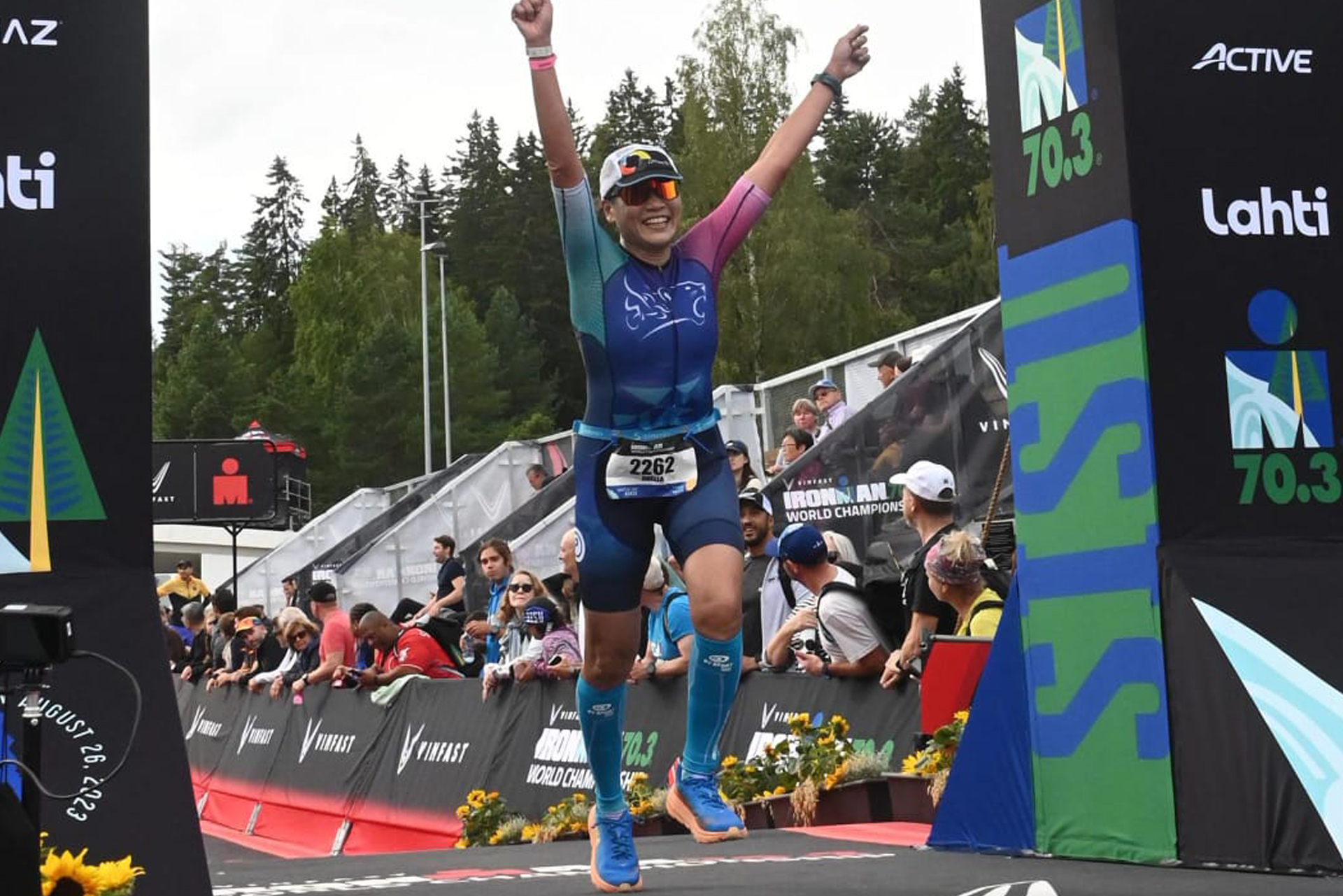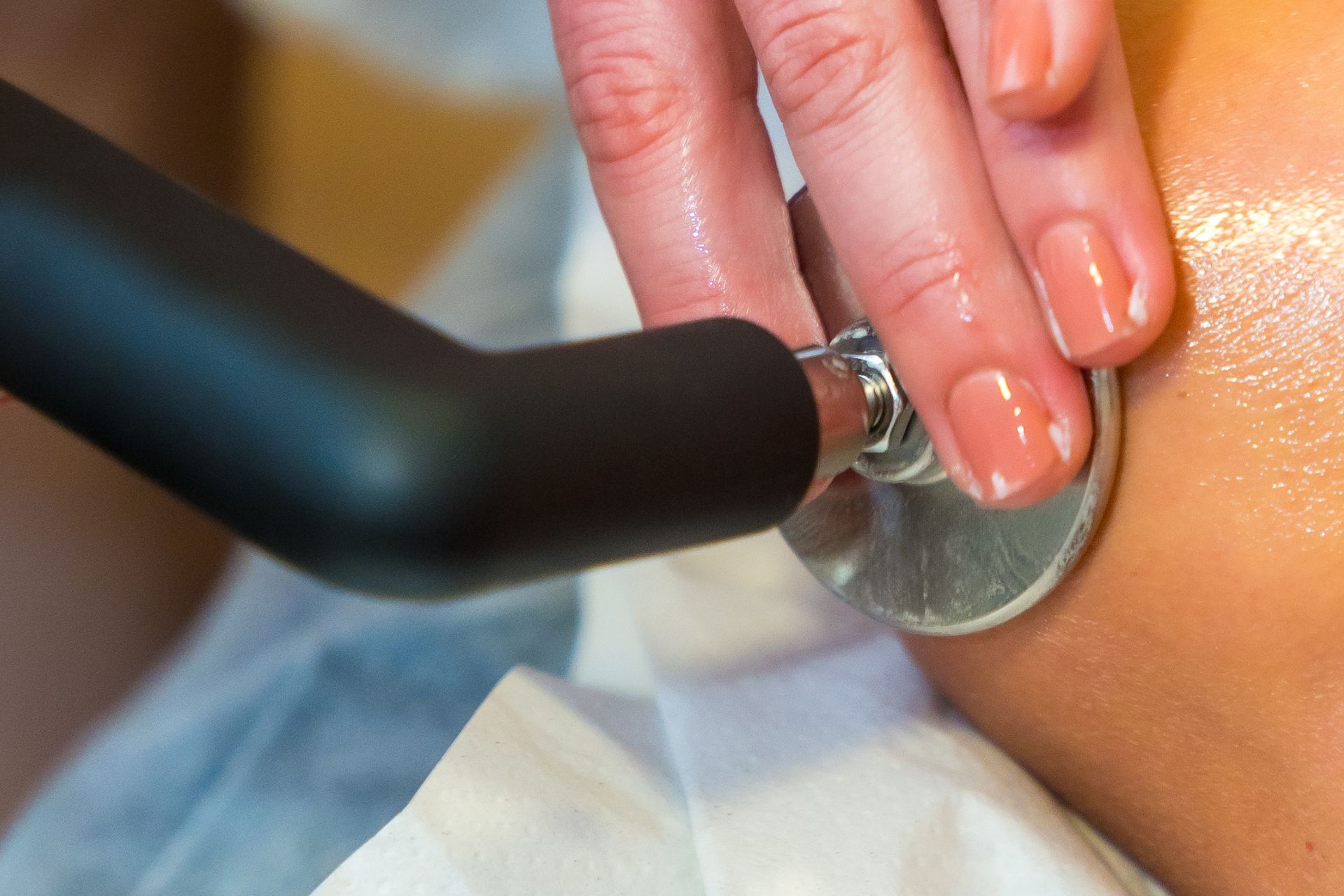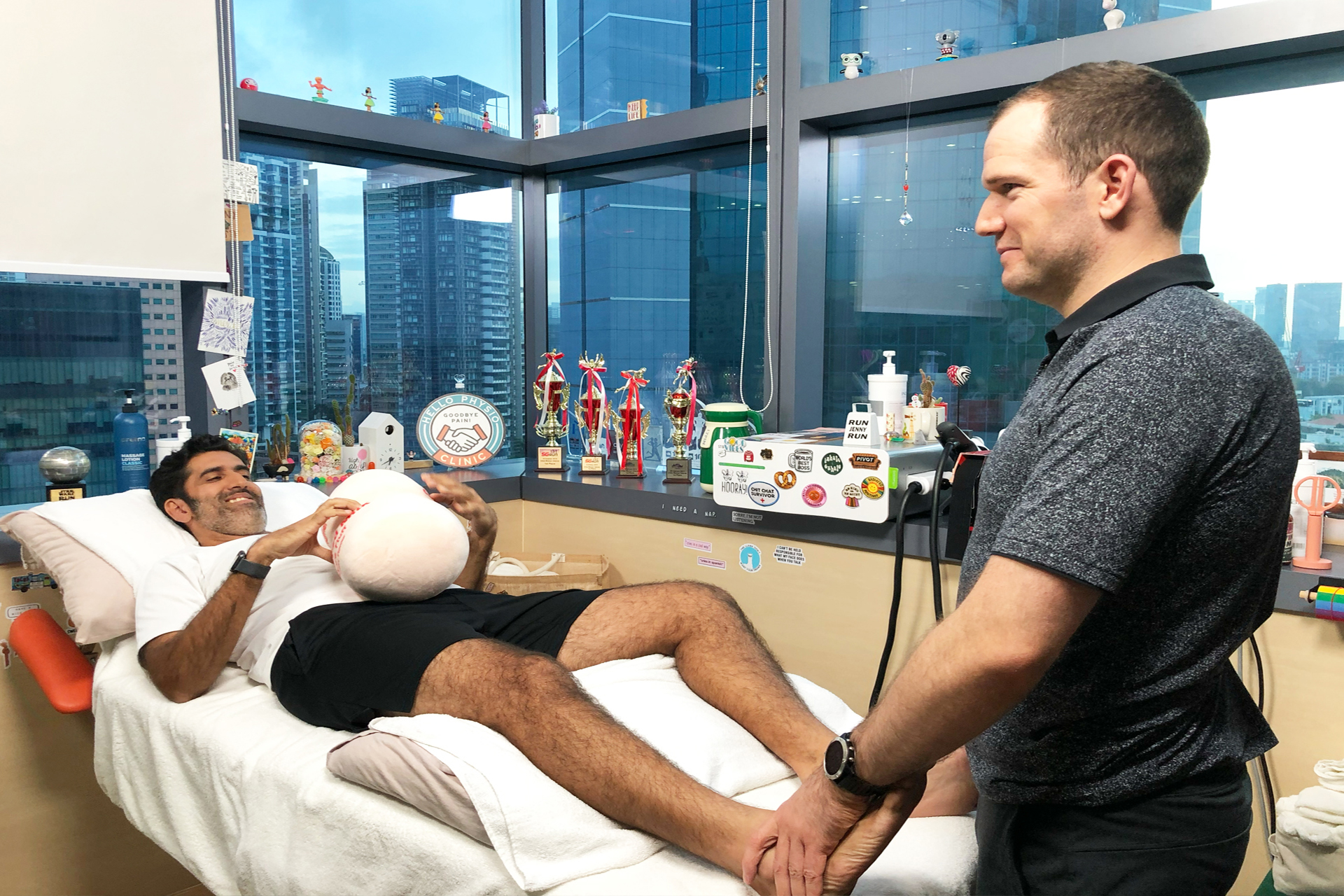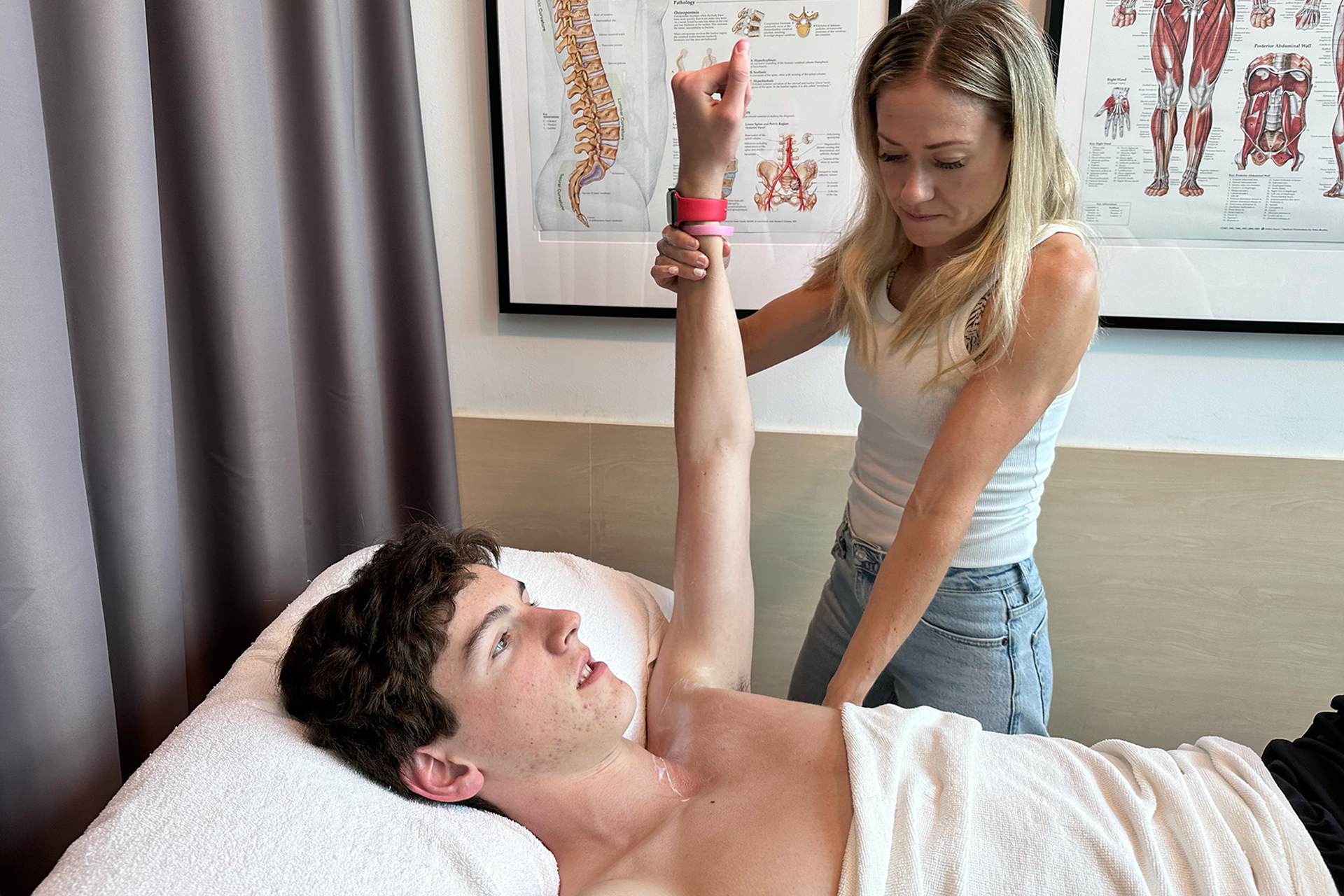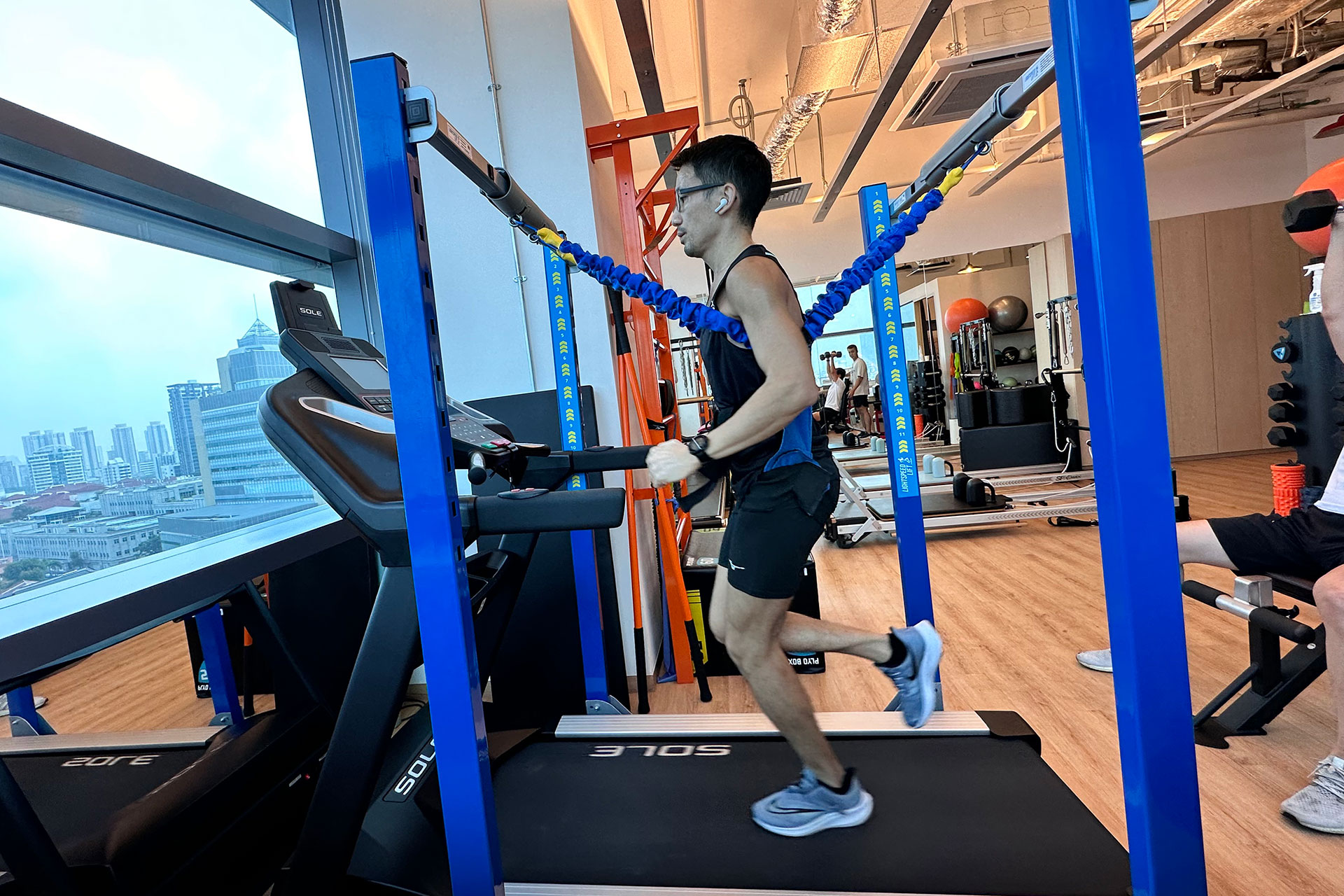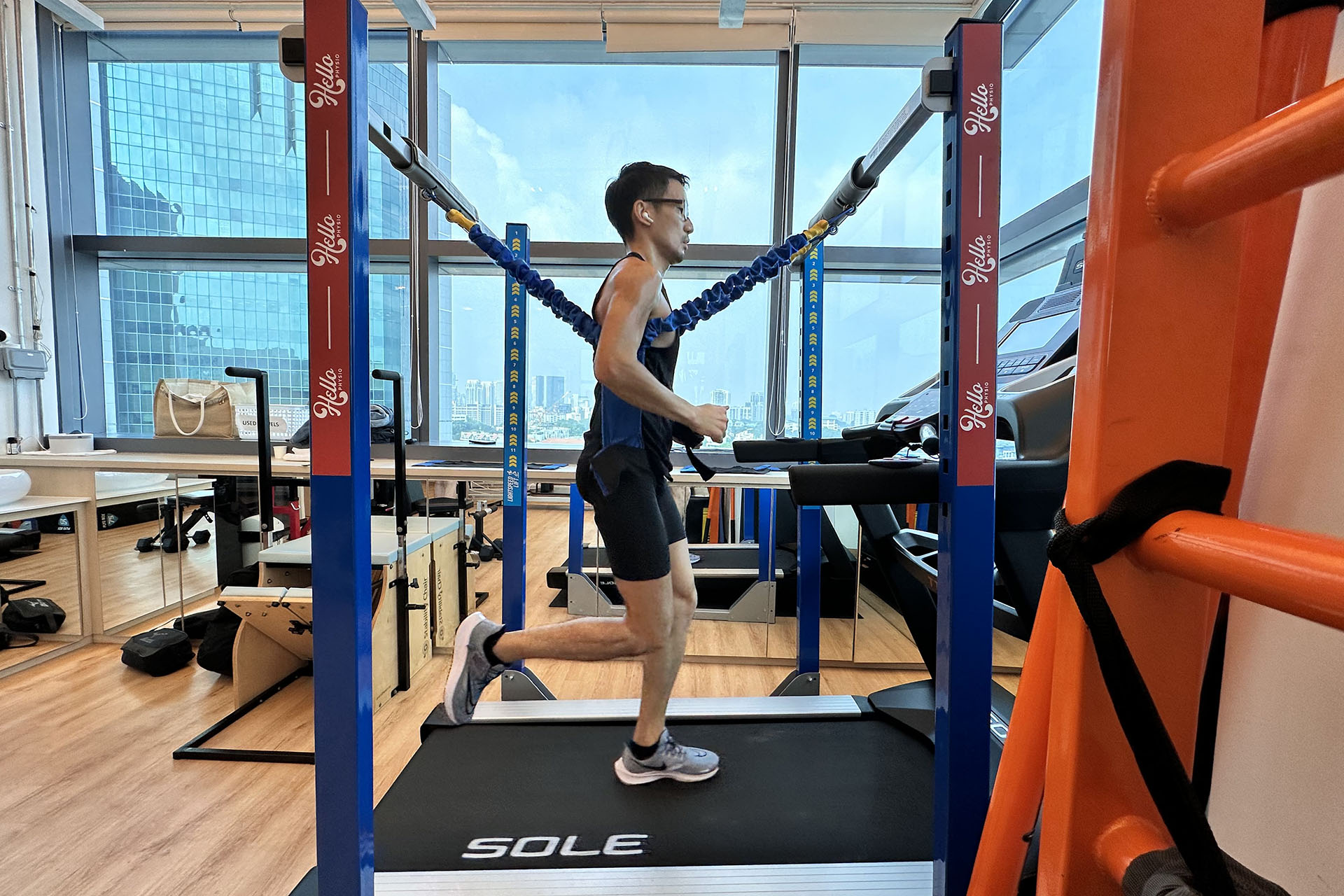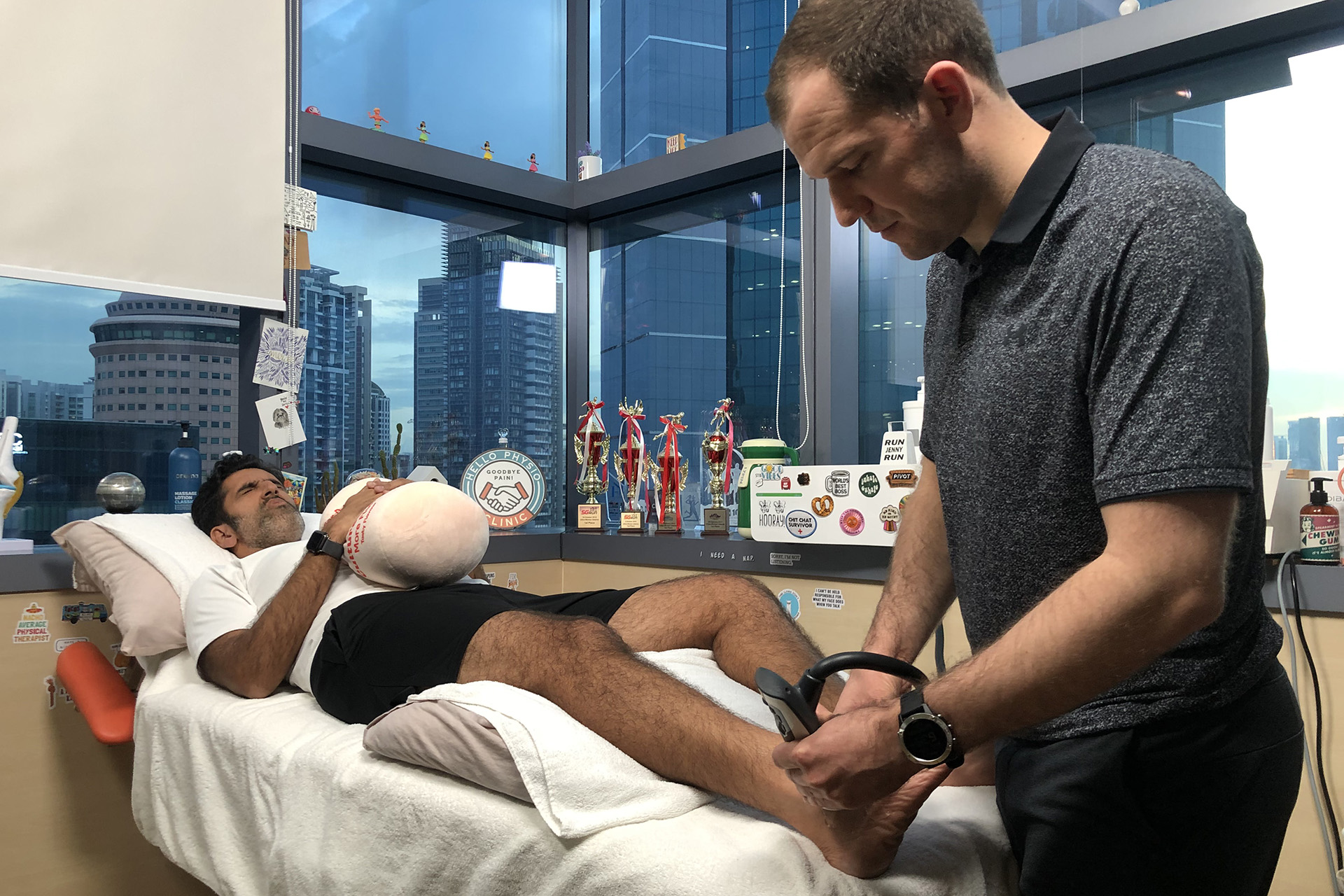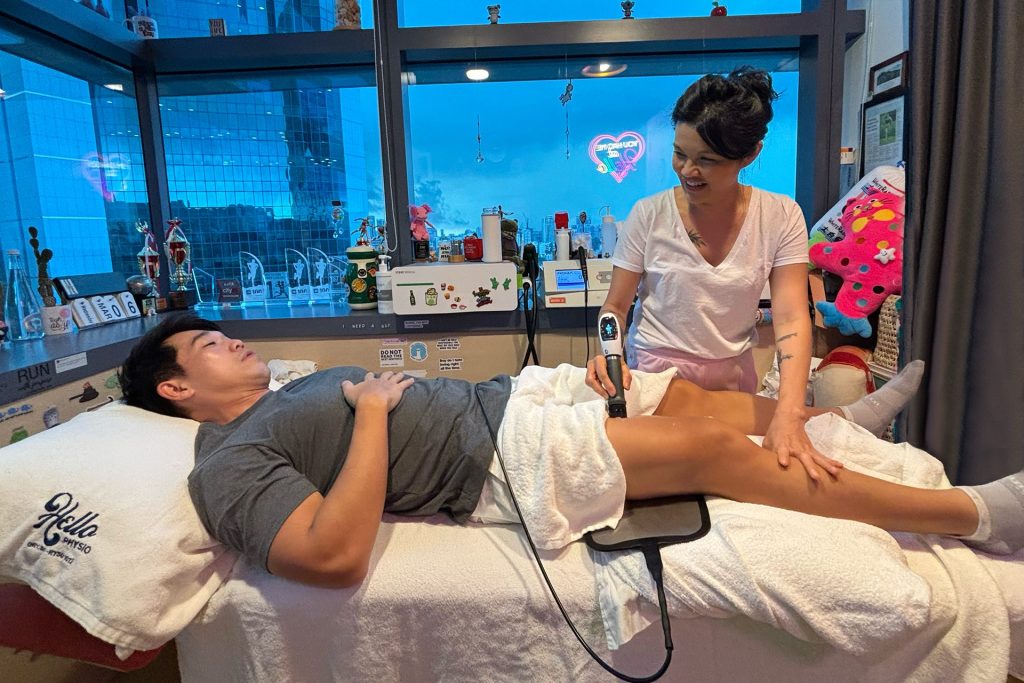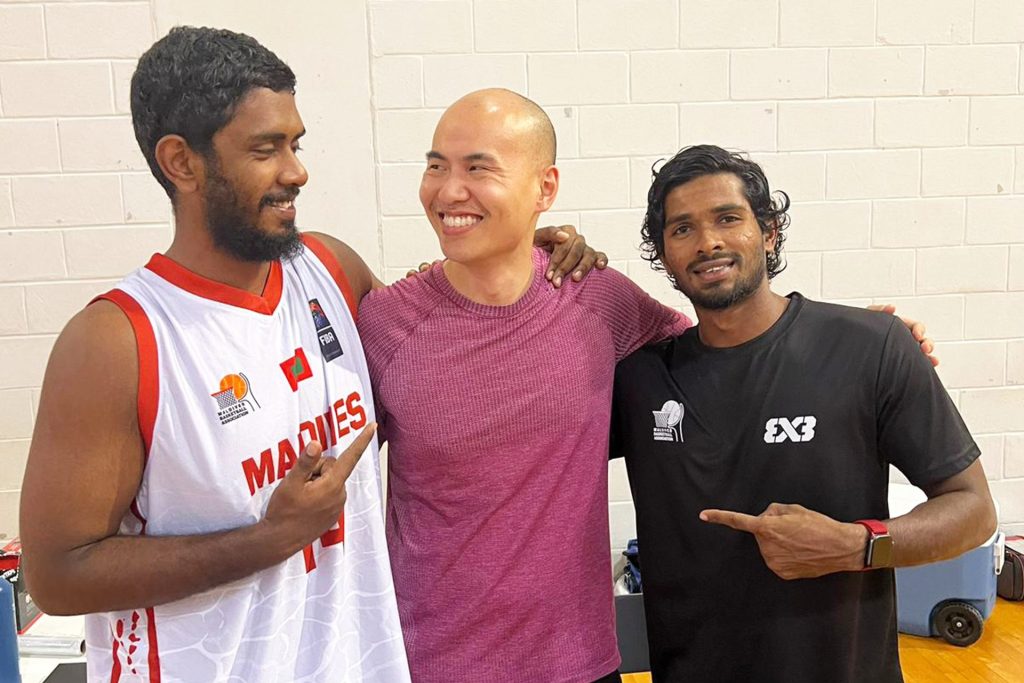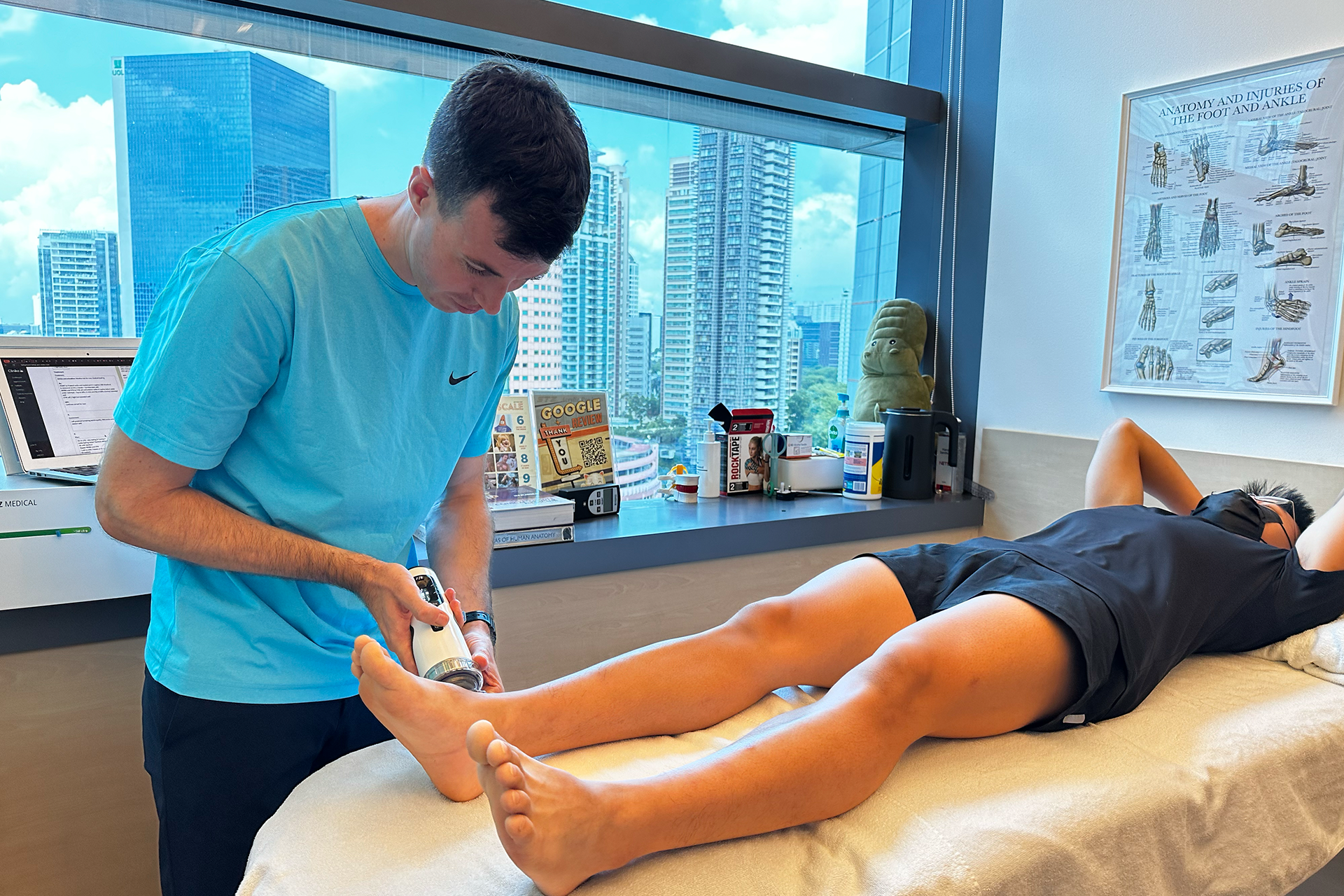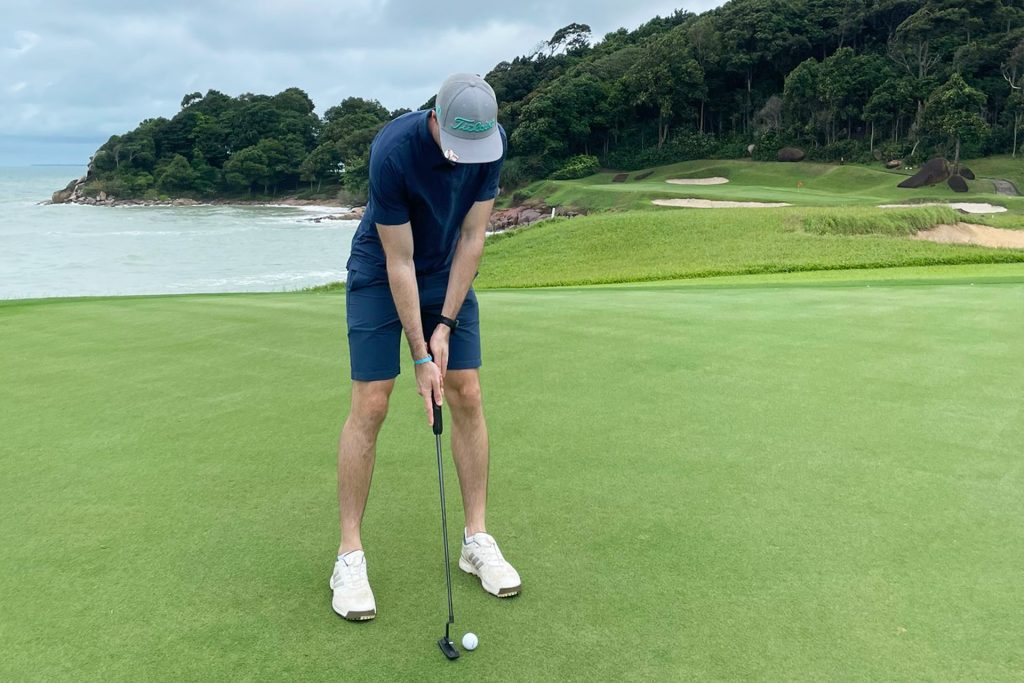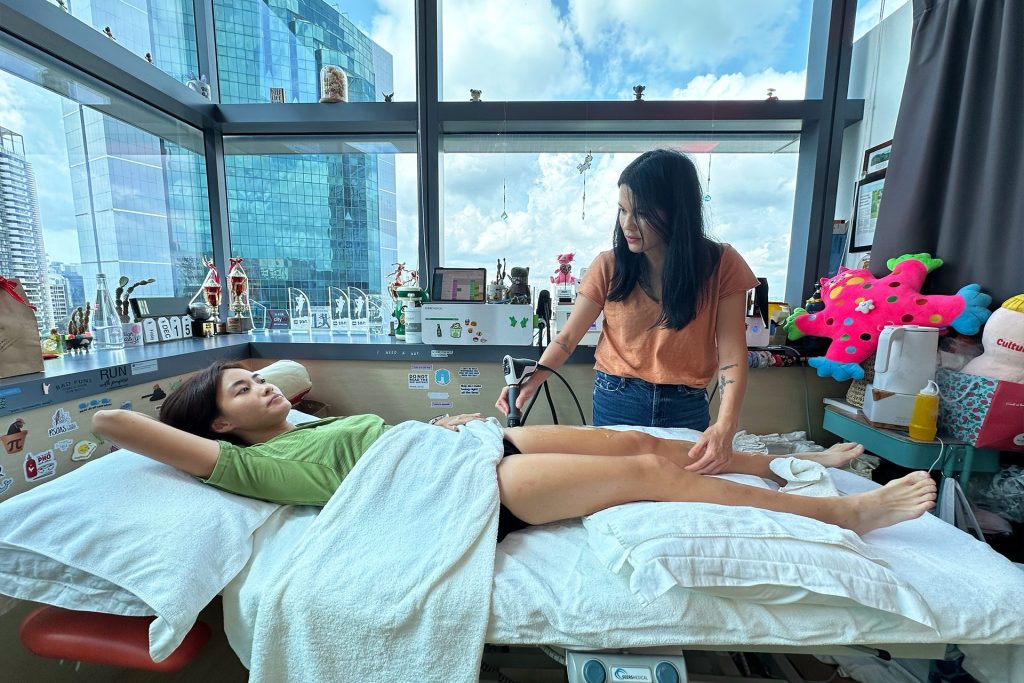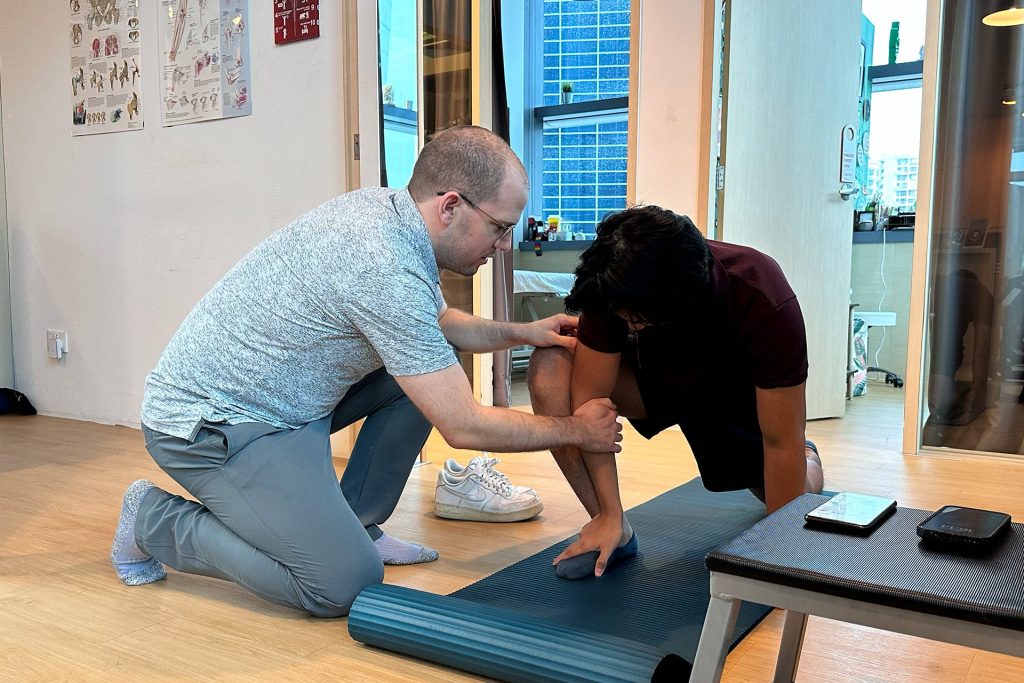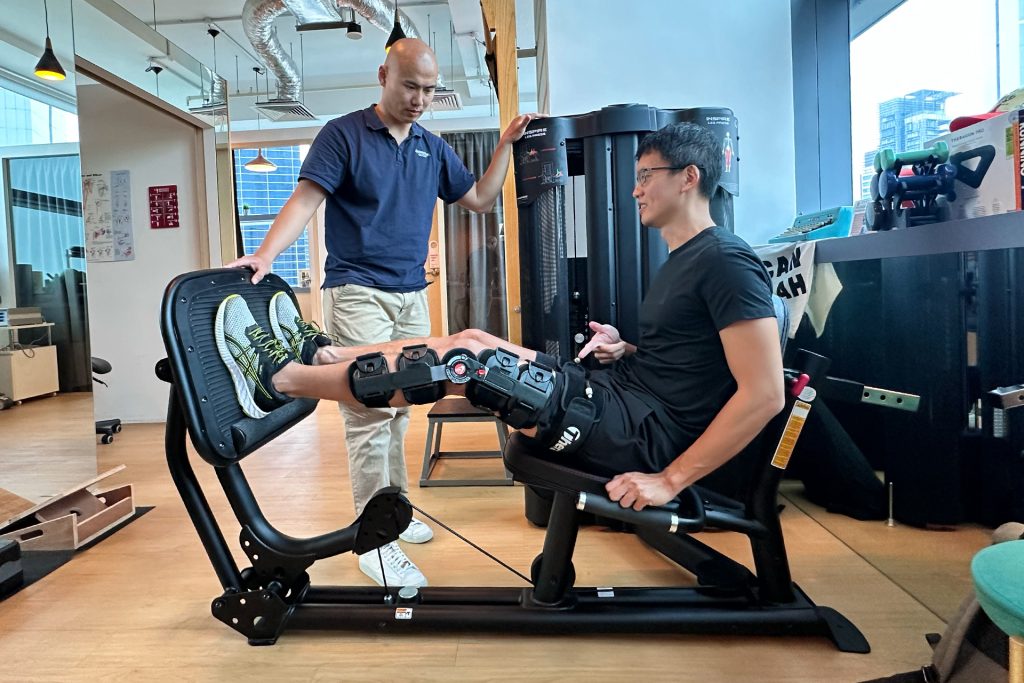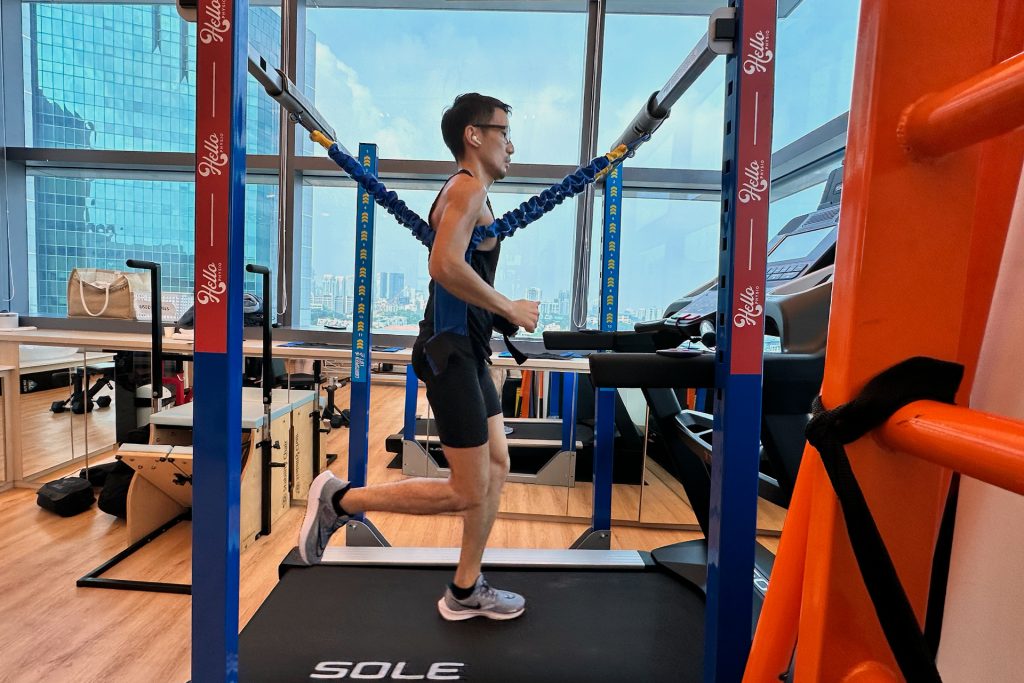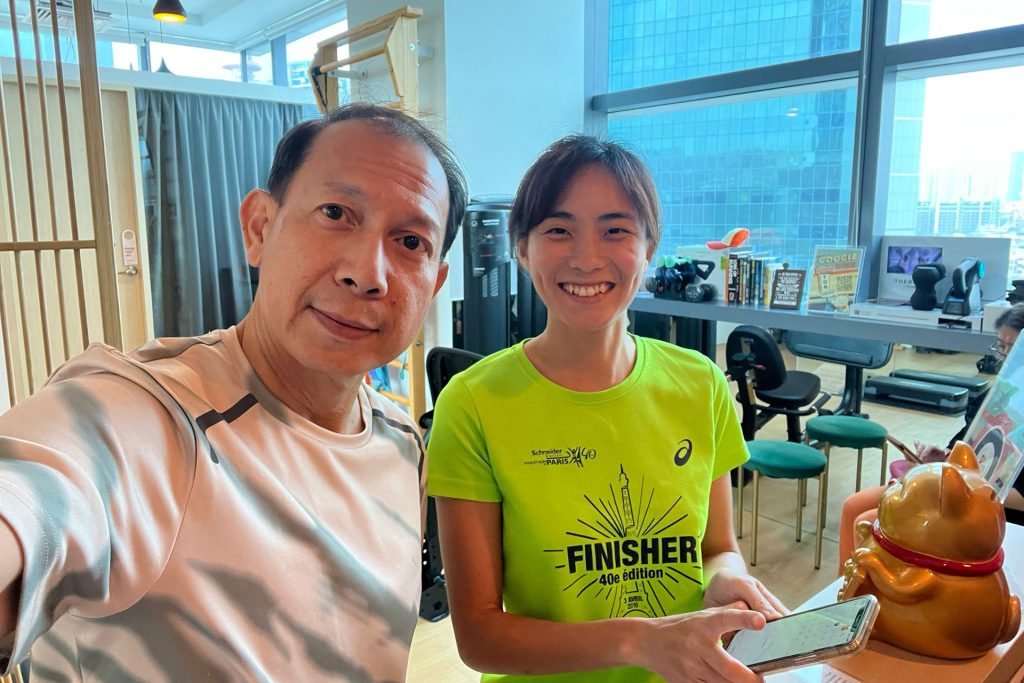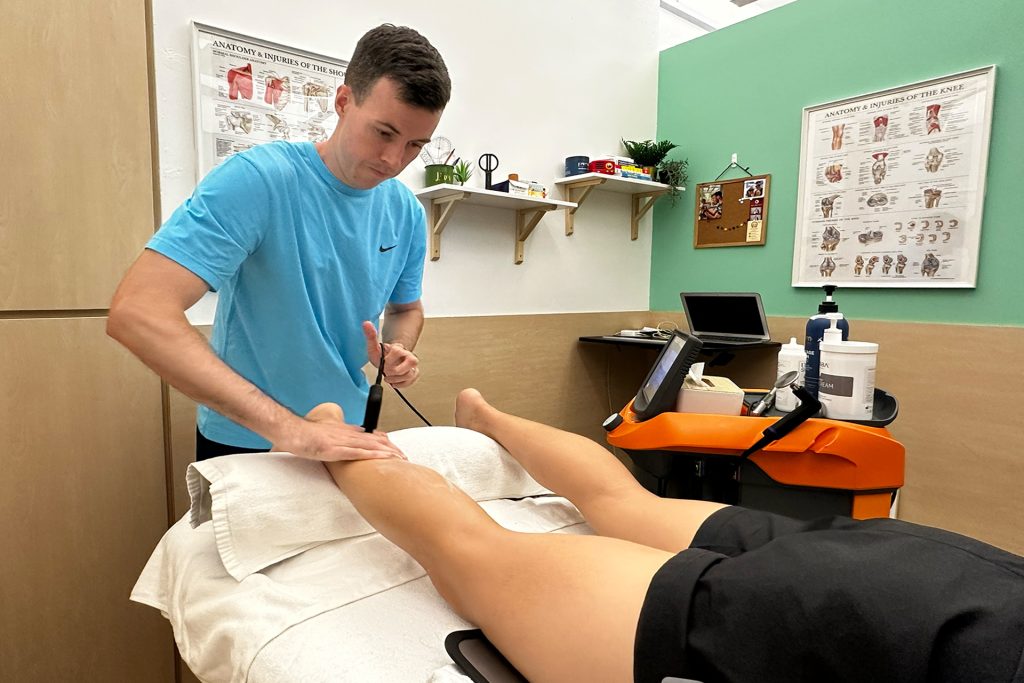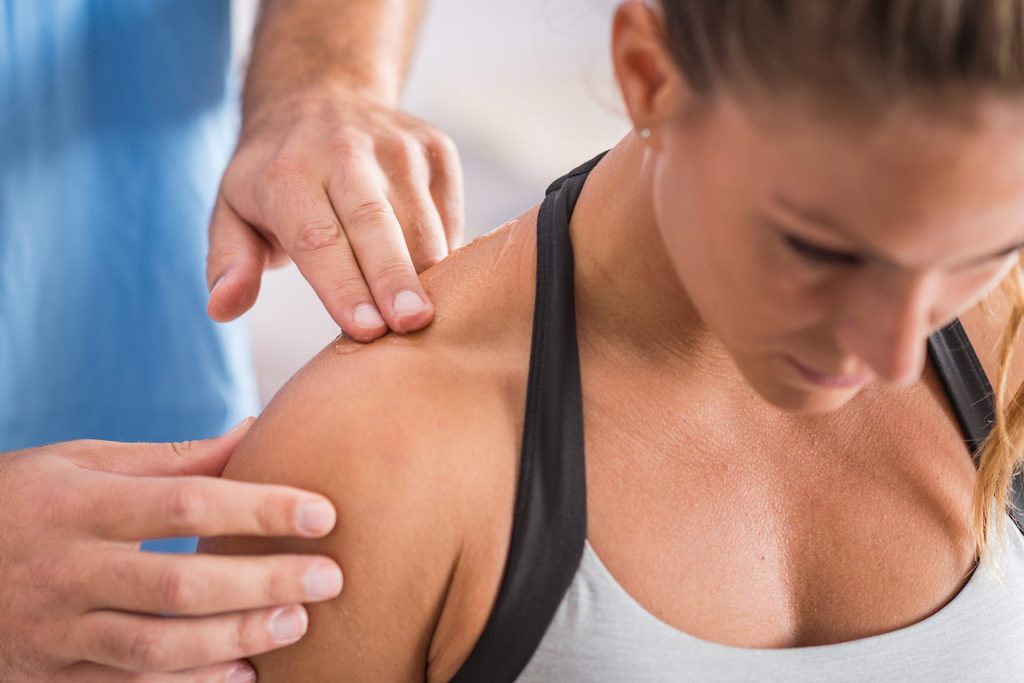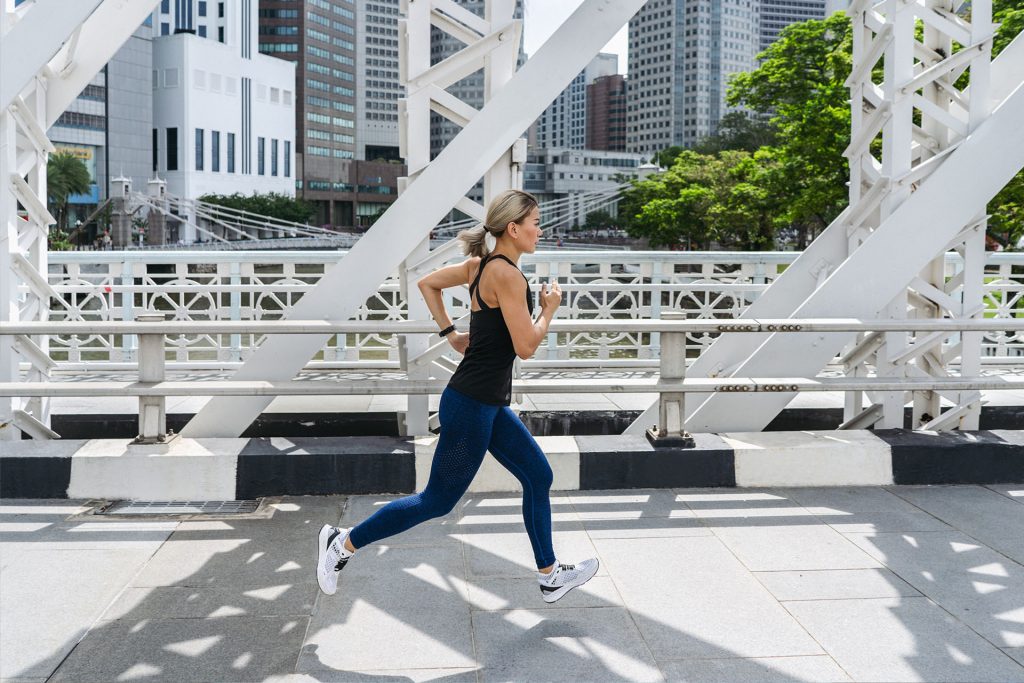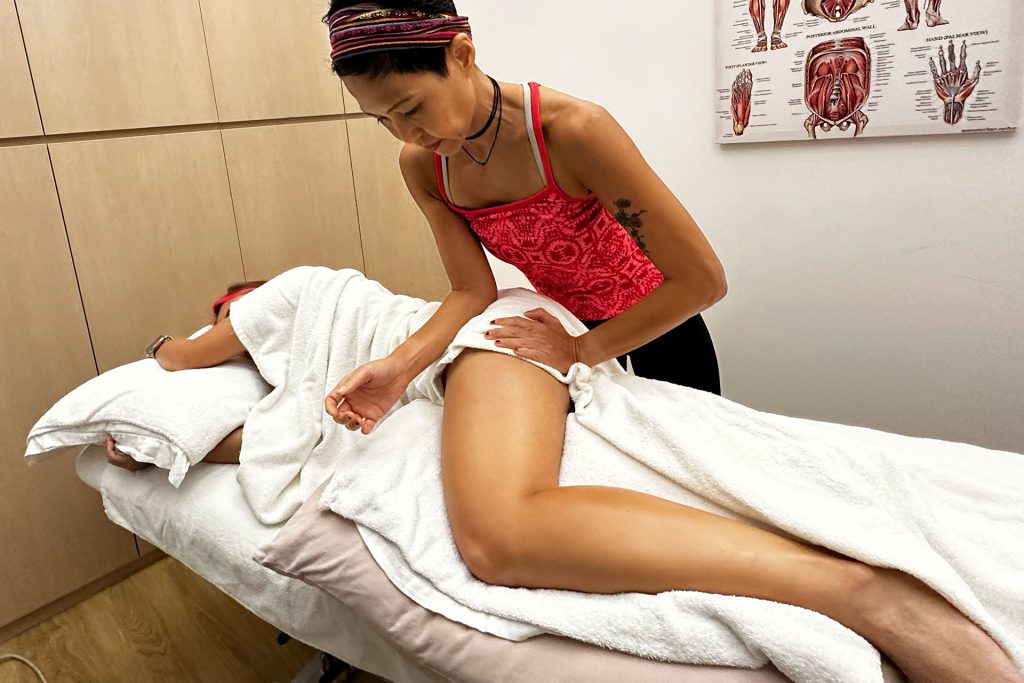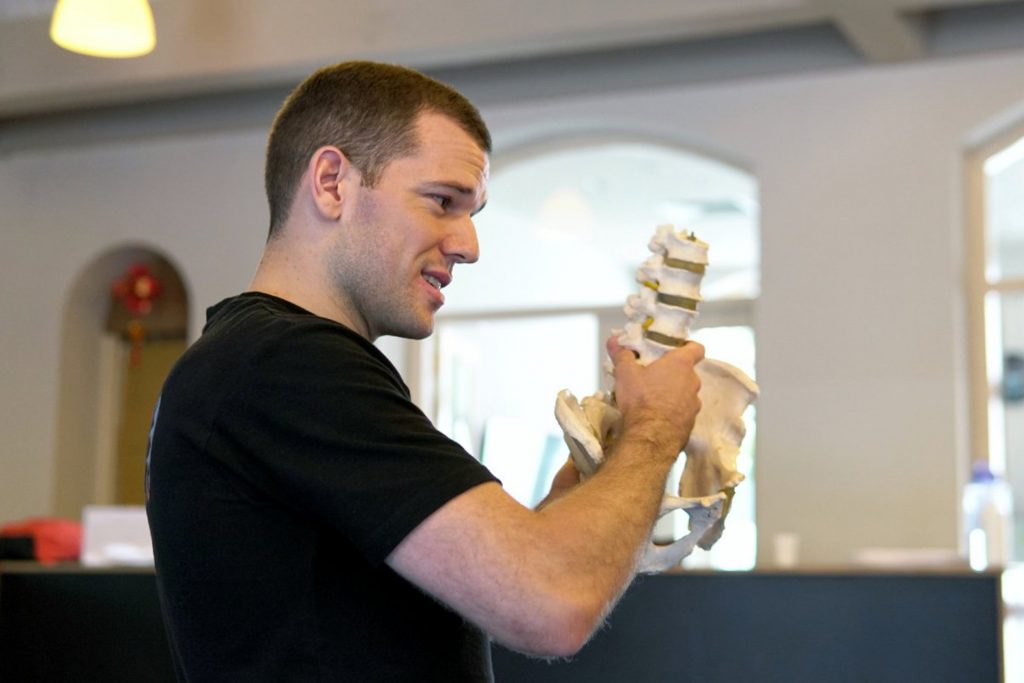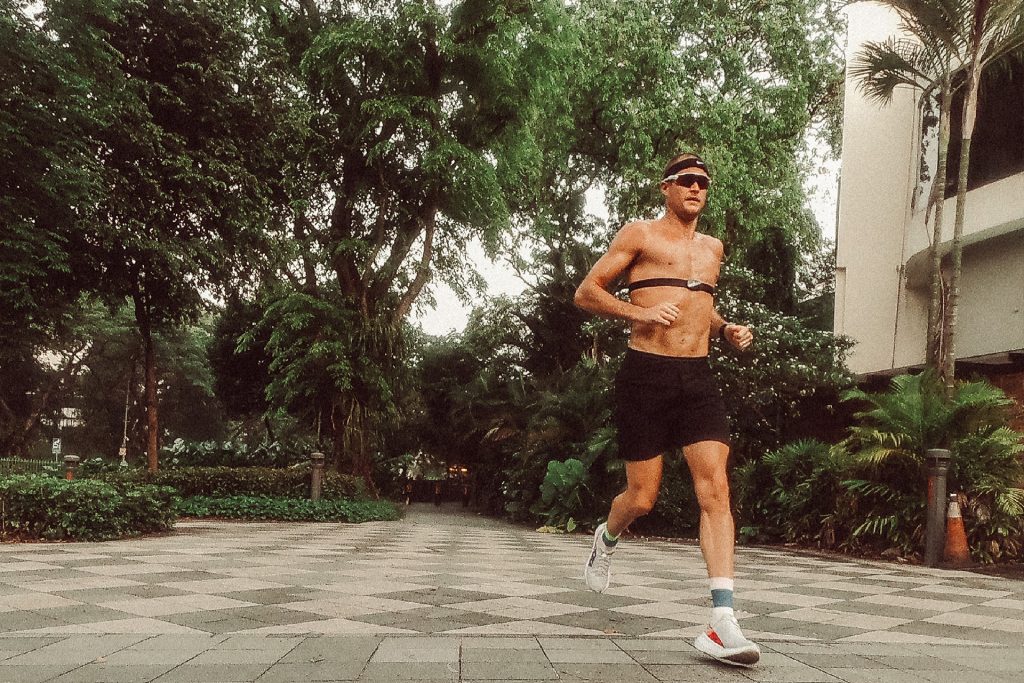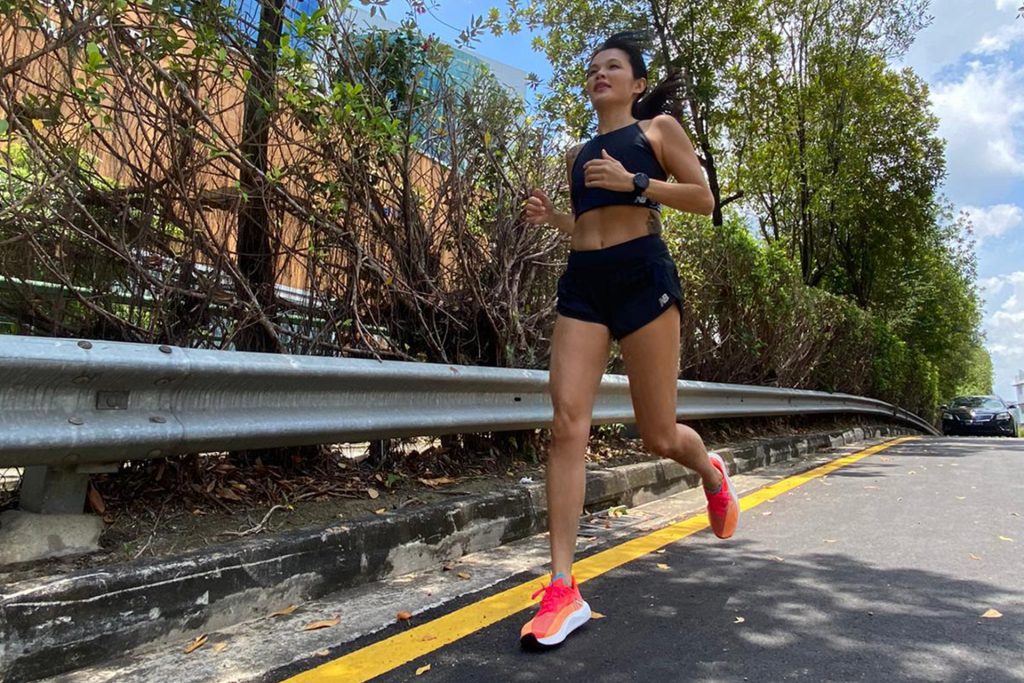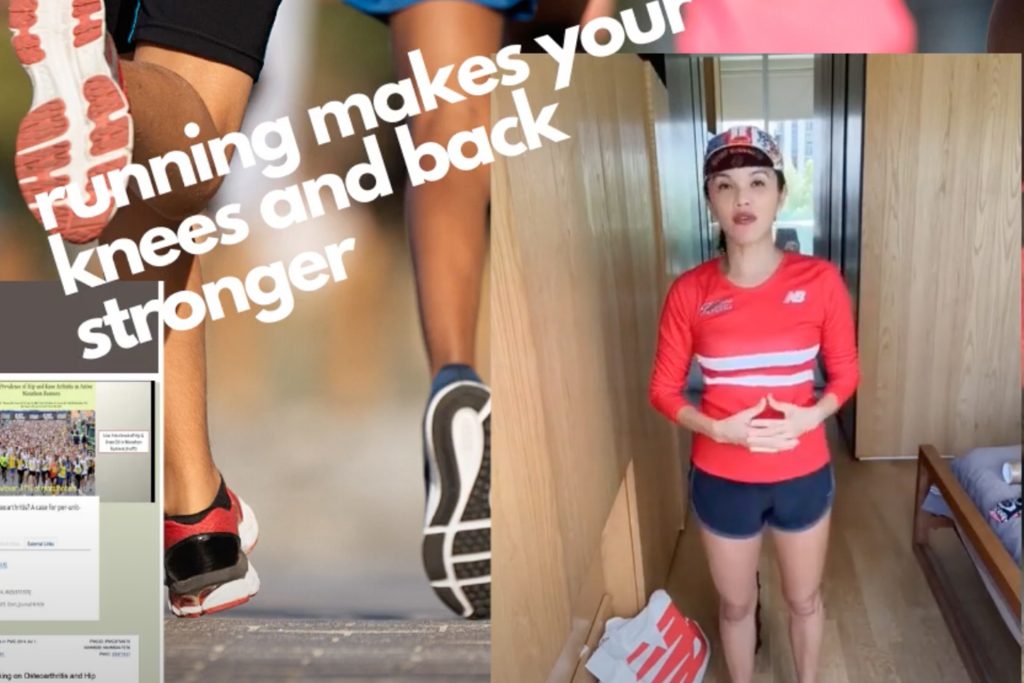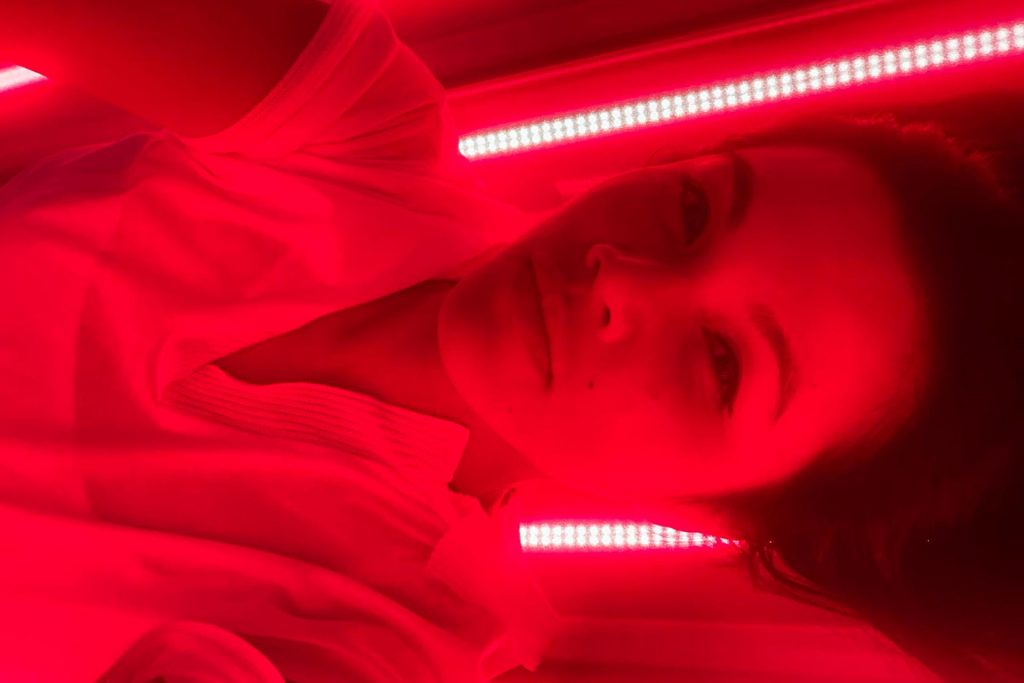Research indicates that more than half of recreational and competitive runners sustain overuse injuries during any given period. As seasoned runners return to virtual start lines, they will be joined by novice athletes who have laced up in the past year. New runners taking up the sport are twice as likely to sustain an injury compared with their more seasoned counterparts.
This may sound doom and gloom, but don’t get discouraged. Marathon runners are typically very headstrong – they aren’t happy to hear that they should run less or, worse, not run at all. No athlete wants to be side-lined due to injury especially after becoming addicted to the runners’ endorphin high.
Through preventive care and muscle strengthening, prehab sports physiotherapy can help keep your body in balance to mitigate risks of injuries and avoid prolonged periods out of action. Let our sports therapists help you decode the myths around musculoskeletal injuries and tips on how to run injury-free.
Common Lower Leg Running Injuries Prevalent in Marathon Runners
Completing a marathon is difficult enough without the challenges of coping with preventable pain from a musculoskeletal injury. Our clinical team assesses your strength, stability and range of motion to identify any functional imbalances that are causing pain. Preventive care works just like any other physiotherapy assessment. This is even more relevant if you have previously been injured, or have had surgery.
You might ask what is the most common running injury we see at our sports injury clinic in Singapore. Research of elite runners reveals that marathon runners are most likely to sustain lower leg muscle injuries. Knee pain is one of the top conditions we see at HelloPhysio, which is consistent with a report that indicates that roughly half, or 42 percent, of all overuse injuries among runners affect the knees, followed by the ankle and foot, lower legs, and then the hips.
It may be assumed that running is the cause of knee pain, but it is much more complicated than that. Human movement is a complex kinetic chain. Weaknesses in one part of the body is likely linked to imbalances elsewhere which can increase the chance of soft tissue injuries, or joint injuries in the knees. If you think that your knee pain is directly related to your passion of running, then think again and read our article about the truth about knee pain, running and common knee injuries.
Preventive care focuses on strengthening and optimizing muscle weakness or range of motion issues that can hinder your mobility leading to injury. If you have an asymmetry or weakness from prior surgery, you may be more likely to injure another link in your movement chain likely as a result of a repetitive overuse injury instead of acute trauma.
What Are the Benefits of Coming to a Sports Injury Clinic?
Many people turn to Google for home remedies and treatment advice. However, misinterpreting the information or self-treatment may actually prolong recovery or lead to more serious complications if you continue running with an injury.
If you’re looking at how to run injury-free, it ultimately comes down to having the right information, strength training, and balance to prevent injuries. Although two runners may experience the same pain, the underlying causes of the problem require different physiotherapy protocols. That’s where a sports physiotherapist can help to wade through all the diverging online information to provide evidence-based treatment recommendations. ‘Dr. Google’ doesn’t always have the answers!
Home exercises or other techniques won’t always fully resolve the condition. Imbalances and weaknesses may graduate to a chronic condition. If the issues require greater attention, our physiotherapists may provide more in-depth treatment plans that may include clinical Pilates to address strength and balance. Do note that clinical Pilates differs from traditional Pilates as training goals are patient-specific.
When you run, you land on one foot. A strong core is essential to keep you stable and balanced. A weak core can increase the risk of muscle strain or joint overload leading to injury. Many marathon runners become so focused on their legs and feet that they often forget to strengthen their core muscles. Prevention ultimately comes down to patient education on the right protocols and training tools that may include sports massage therapy or enhanced training on our LiftSpeed Lift bodyweight system.
What are the Best Ways to Treat a Common Sports Injuries?
Running-related injuries are often attributed to repetitive motion. They are not only treatable but preventable. The following are some of the most common injuries that we see in our clinic:
- Achilles tendinitis
- Iliotibial band syndrome
- Metatarsals or tibia stress fractures
- Patellofemoral pain syndrome
- Plantar fasciitis
- Shin splints
As novice runners graduate to longer distance runs, a marathon training injury is more likely to occur. You can still keep your bones, muscles, tendons, and joints in good shape by taking simple preventive measures. This will save you from more serious injuries that could keep runners off the roads for months at a time.
At our physiotherapy clinic in Novena, Singapore, we provide preventive care as well as injury treatment to distance runners who may be experiencing pain or are not injured and want to keep it that way. As a team of avid runners and athletes, we’re passionate about distance running and we know first-hand how it feels when injuries strike. If you’re looking to prevent injuries or have persisting pain, find out more about our sports physiotherapy services today.

